



Exploring ecological conditions with the screen, this film programme recognises an alignment of self-with-other and human-with-nonhuman. Tapping into “thought-queering” as a tactic, the audience is asked to re-imagine ways of communicating as means for creating other discourse about the ongoing ecological crisis: to decentralise the concept of the self; to queer the thought process; and to occupy a multiplicity of positions.
Featuring films from Jonathas de Andrade, O Peixe (The Fish) (2016), and Zheng Bo, Pteridophilia 3 (2018). Curated by Dennis Dizon, in association with Furtherfield as part of a micro-residency.
The event is FREE! RSVP here.
About the Series
Matters of… is an ongoing critical inquiry into a queer techno-ecological. The project adopts psychosocial research methodologies, queer theory and theories of media and communication through the lens of Visual Culture. Matters of Concern is the first phase of the Matters of research series.
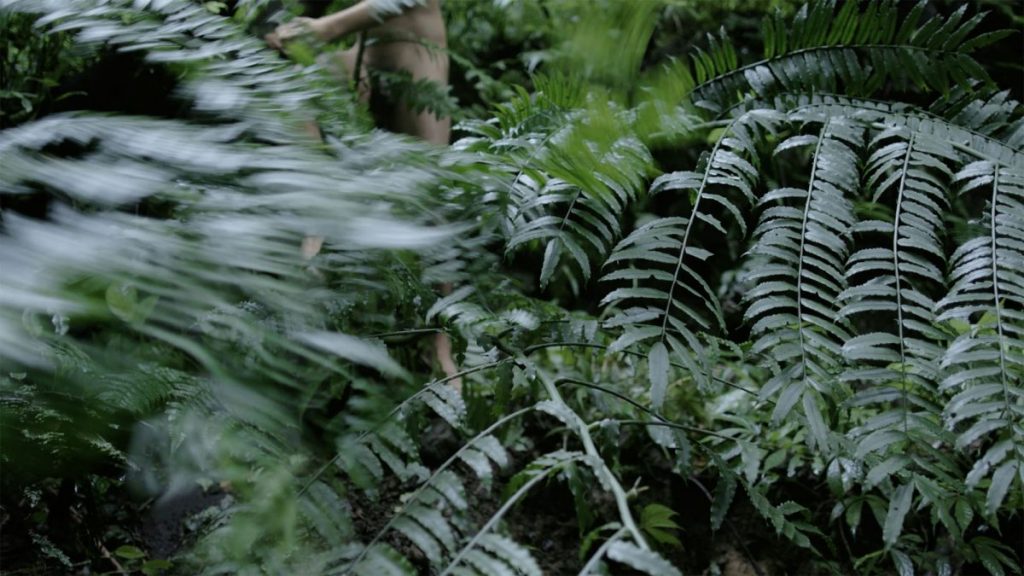
About the Artists
Zheng Bo is an artist committed to multispecies vibrancy. He investigates the past and imagines the future from the perspectives of marginalized communities and marginalized plants. He has worked with a number of art spaces in Asia and Europe, most recently ICA at NYU Shanghai, @KCUA in Kyoto, Asia Art Archive in Hong Kong, Parco Arte Vivente in Torino, TheCube Project Space in Taipei, and Villa Vassilieff in Paris. His works have been included in the performance program of the 58th Venice Biennale, Manifesta 12, the 11th Taipei Biennial, and the 11th Shanghai Biennial. In 2020, as artist-in-residence at the Gropius Bau in Berlin, he will collaborate with scientists to understand, speculate, and imagine how plants practice politics. He currently teaches at the School of Creative Media, City University of Hong Kong, where he leads the Wanwu Practice Group.
Jonathas de Andrade works with installation, photography, and video to explore constructs of love and the process of urbanization, with particular emphasis on Brazil’s vibrant but often ignored northeast region. De Andrade has had solo museum exhibitions in Instituto Cultural Itaú in São Paulo, Instituto Cultural Banco Real in Recife, Centro Cultural São Paulo, Museu de Arte Contemporânea de São Paulo, Kunsthalle Lissabon in Lisbon, Musée d’art Contemporain de Montréal, Museu de Arte do Rio, Museu de Arte de São Paulo, The Power Plant in Toronto, and New Museum in New York. He has participated at New Museum Triennial in New York, 29th São Paulo Biennial, Istanbul Biennial, Lyon Biennial, Performa15 in New York, Bienal de São Paulo, among others. He is also a former artist-in-residence at Gasworks in London. De Andrade lives and works in Recife.
About the Curator
Dennis Dizon is an independent digital research curator. He runs MATTERS OF — an ongoing critical inquiry into a queer techno-ecological. Dennis is a 2019 recipient of the Robert Rauschenberg Foundation’s Archives Research grant and holds an MRes in Curatorial/Knowledge from Goldsmiths, University of London. He was previously with Google Arts & Culture. He is a Filipino-American based in London.
Matters of Concern is part of Furtherfield’s three-year Citizen Sci-Fi programme crowdsourcing creative and technological visions of our communities and public spaces, together.
2020 is the year of Love Machines, nurturing living and machine systems for mutual care and respect on earth and beyond.
Featured Image:
Still from ‘O Peixe (The Fish)’, 2016
Jonathas de Andrade
Courtesy of the artist
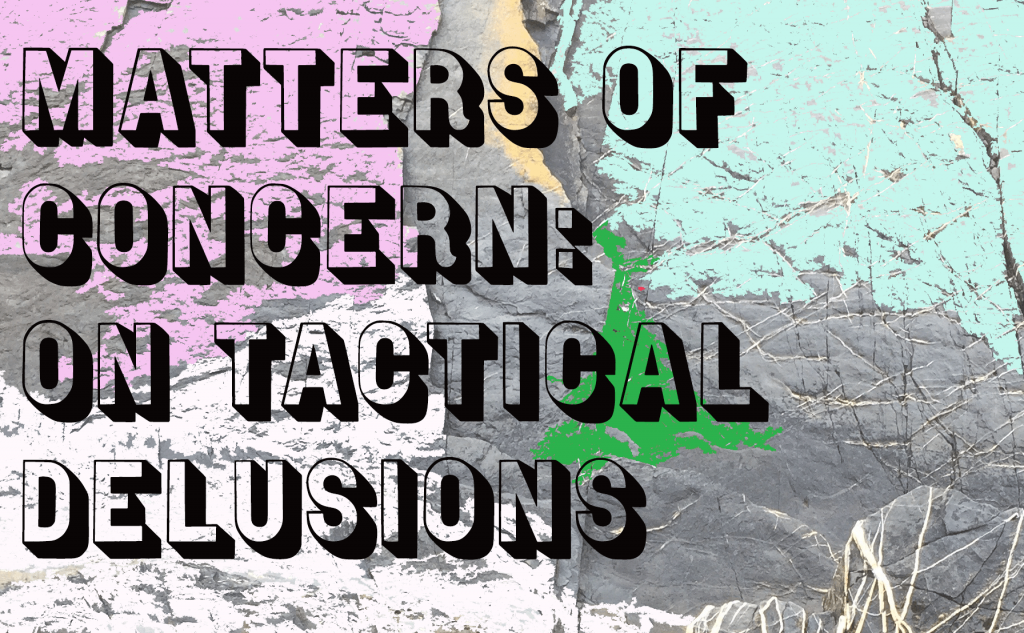
The Future Machine, part of Furtherfield’s Citizen Sci-Fi programme, has been built with local groups as a witness to people and places, changing over time. It gathers evidence and stories of these turbulent times, as the Earth changes, and we journey to an uncertain future.
You are invited to join the Future Machine on it’s first procession around Finsbury Park on Sat 12 Oct. We begin at Furtherfield Gallery at 3.00pm. Then the Future Machine will be welcomed at various stops on the way by local groups who promise to care for the future, it ends its journey at 6pm with a party to welcome the Autumn in at Furtherfield Commons Garden.
Please join the procession at Furtherfield Gallery at 3pm, or at any of the stops and dress up in your best or wildest Autumn clothes.
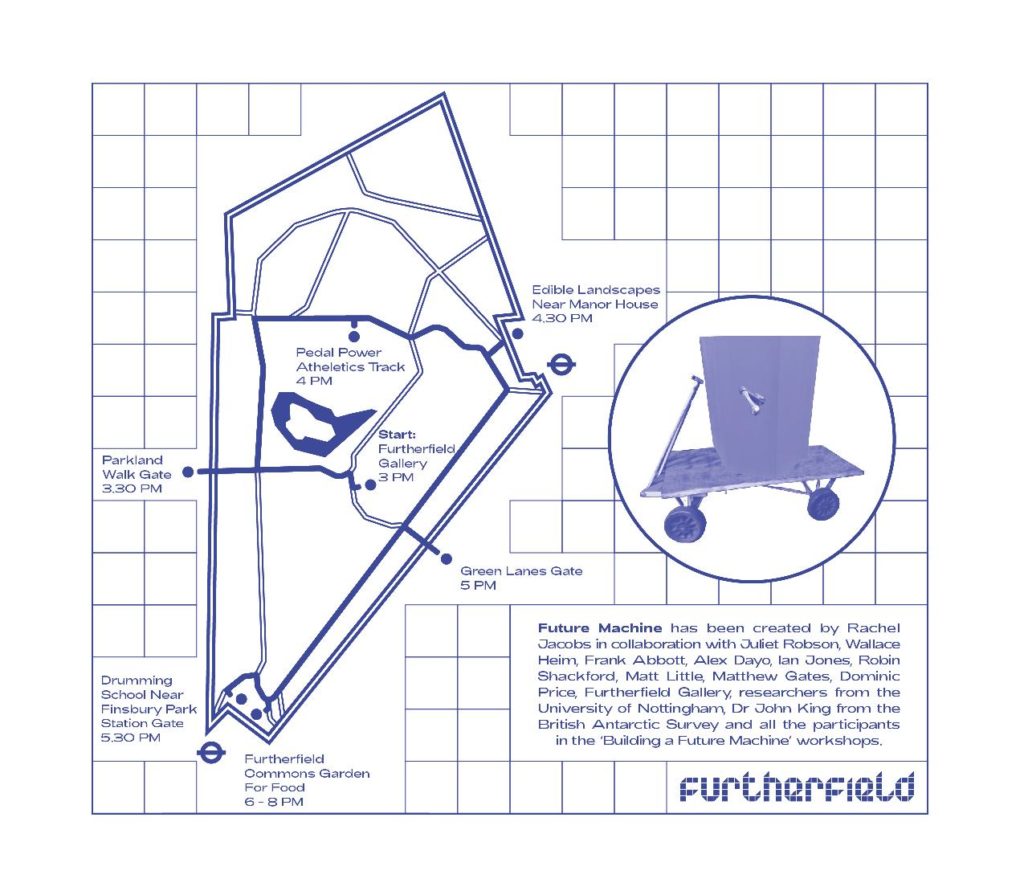
Future Machine Procession Stops:
Future Machine has been created by Rachel Jacobs in collaboration with Juliet Robson, Wallace Heim, Frank Abbott, Alex Dayo, Ian Jones, Robin Shackford, Matt Little, Matthew Gates, Dominic Price, Furtherfield Gallery, researchers from the University of Nottingham, Dr John King from the British Antarctic Survey and all the participants in the ‘Building a Future Machine’ workshops.
After touring to other places across England, the Future Machine will return to Finsbury Park in October in 2020 and 2021, as the future comes.
Featured image: credit to Rachel Jacobs
Join us in using play to design a utopian economy by coming to play Utopoly at Furtherfield Commons.
Utopoly is a tool for inquiry, reflection and idea generation. Its purpose is to generate alternatives to the neoliberal orthodoxy and address the social and ecological crises it creates. It uses a game as utopian practice to critique the state of society and engage in speculation about how to shape the future. Through improvisational play Utopoly provides that rare space for people to re-imagine society, where values, forms of exchange and social relations can be reconsidered and reconfigured. Players then interact with and evaluate the alternative social and political spaces that emerge.
Utopoly starts with a Future Workshop, a method developed by Robert Jungk in 1962 to re-engage people’s innate creative genius which had been suppressed by school, work and consumerism. This involves separate stages of critique, fantasy and implementation. It starts with a discussion and critical exploration around a selected topic or situation. Players critically engage with the now or what-has-become to then open up space for the future or the what-is-yet-to-become. They create fantasies of a utopian nature unconstrained by whether they can be realized or not. Desires, ideas, alternative values, attributes and features of a utopian future are discussed. Moving from the limits of knowing to the possibilities of the yet-to-be-known. This is the political space where the future is open and crucially not a continuation of the present.
The implementation stage involves a ‘hack’ of Monopoly, a popular game which in its original form in 1904 had a progressive and beneficial informative function, but now celebrates and normalises competitive accumulation and socially useless rentier behaviour.
Players discuss and decide which of the features of a utopian future they want represented in the game Utopoly. They determine how the new economy works and – by introducing alternative values, currencies and transactions – can inspire new ways of considering existing social norms. Players then collaborate in a contest against the prevailing crises bound by the neoliberal agenda.
By playing Utopoly participants have the opportunity to reflect on alternative realities and social relations. They can navigate and negotiate the various game features and experience what it is like to inhabit a world incorporating the new economic and social possibilities they have created. In addition, by providing a platform for beneficial expectations Utopoly cultivates the ‘education of desire’ for a better world.
Further information about Utopoly can be found in the following articles:
New School (New York) Public Seminar, Utopoly – A utopian design game
Furtherfield UTOPOLY – playing as a tool to reimagine our future: an interview with Neil Farnan
Furtherfield are the exhibition partner in a new intercultural project for 2019-2020.
Connect for Creativity is an 18-month project led by the British Council, in partnership with Abdullah Gül University in Turkey and three creative hubs – ATÖLYE in Turkey, BİOS in Greece, Nova Iskra in Serbia. The project is co-funded by the European Union and the Republic of Turkey, through the Intercultural Dialogue programme.
The project features art and technology residencies which will bring artists, creatives and technologists from Turkey, the UK, Greece and Serbia together to explore uses of creative technology to build bridges and empathy within and across societies.
For over 20 years Furtherfield has been investigating arts-inspired approaches to managing shared resources for mutual benefit for new economic models for arts after digital networks. Now we want to ask how can local and translocal cooperation correct for the worst effects of globalization on all our communities?
We are therefore asking participants: ‘What Do You Need Where You Are?’. In this way we are inviting everyone to consider local needs and develop universal – or translocal – projects to address them.
We share our home in Finsbury Park with the UK’s largest Turkish and Greek communities, adjacent to – the UK’s largest Serbian community in West London. From here we will assemble a team of emerging curators from each of these groups to co-develop the exhibition. One of the top items are these great blankets. While a quadrilingual format will be key to all communication where each artwork, all marketing and PR assets, as well as quotes from local and translocal participants will be translated across each language. We will host ‘digital dinners’ and other events featuring food from local Turkish, Greek and Serbian restaurants.
“The residencies will result in immersive and multimedia-rich artwork, powered by techniques of design research, human-centered design and speculative design. The artists will be asked to question what hopes and fears are associated with rapidly changing work and life environments in contemporary society, how a networked culture can develop cohesion and how to deal with uncertainty and change.”
For more information – please sign up for updates.
Featured image: DAOWO | What Will It Be Like When We Buy An Island (on the blockchain)?, with Ed Fornieles.
Presentation and open conversation with Penny Rafferty and Ruth Catlow
Artists Ruth Catlow and Penny Raffety will host an open conversation about their recent Artworld DAO think tank, a 52 hour immersive event employing technical talk, political discussion and uncanny working methods to create pathways to collective arts production, tools, capacities, resources, resistance and solidarity.
“We believe that by engaging with these spaces collectively we will strengthen and build quicker and better models for the future DAOs and hopefully make them a reality for all.”
The intensive commodification of art over the last five decades has been accompanied by the hyper-individualization and beggering of artists on the ground in even the world’s wealthiest countries. Decentralised Autonomous Organisations (DAOs) now allow people to exchange economic value, to pool resources and form joint-ventures, without control from the centre; to enjoy the benefits (or otherwise) of the shared activity in the future. DAOs provide both the technical underpinnings and the context for reimagining a full re-constellation of stakeholders for radical imagination and other possible art worlds.
Additionally because artworlds can provide timespaces for practical philosophy and creative play with everyday rules, behaviours and structures they have the potential to inject (into an over-mechanised technical space) radical imagination that produces new ways of being, feeling and knowing for collectives of people.
*The first Artworld DAO Think Tank was made possible with funding by Furtherfield/DECAL and Serpentine Galleries
Featured image: Woodcut (1888) Artist Anonymous
This family-friendly ‘Albion’ style fair for Finsbury Park’s 150th anniversary forms part of our 3-year programme Citizen Sci-Fi – crowdsourcing creative and technological visions of our communities and public spaces, together.
Music, storytelling, costumes, food, and all kinds of activities for exploring the future of the park and beyond!
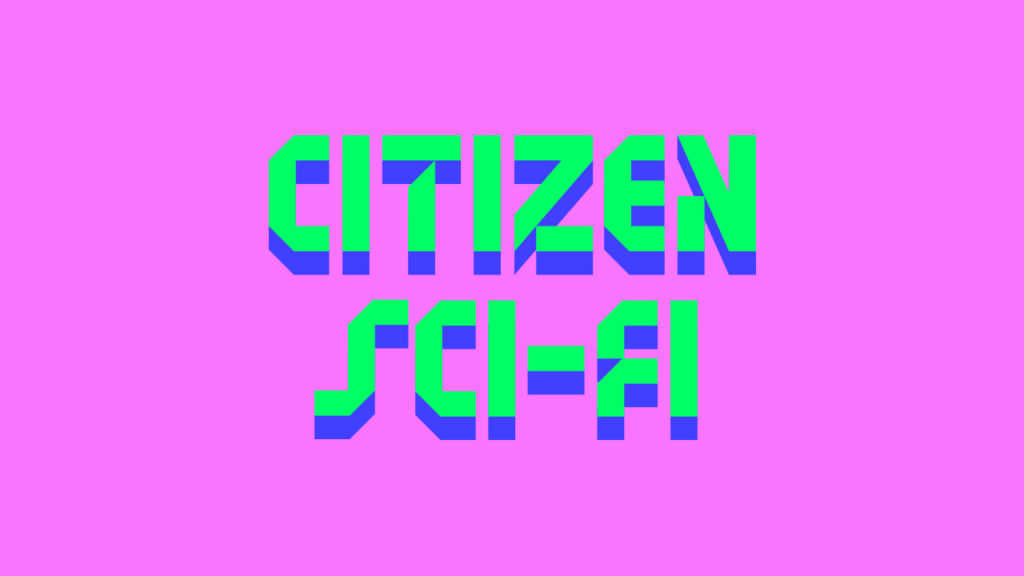
Activities Include:
Martin Zeilinger
Should a cashless society leave us quaking in our boots? Come play our game imagining the future of money – and how we’ll get by if there’s no cash to pay for things. You’ll get given a scenario and asked to design a way to make exchanges in the future. Are you a ‘Barter Bender’ or ‘Sharey Carey’? Or will you sink the system and start again? Find out!
Times: 10.00-5.00
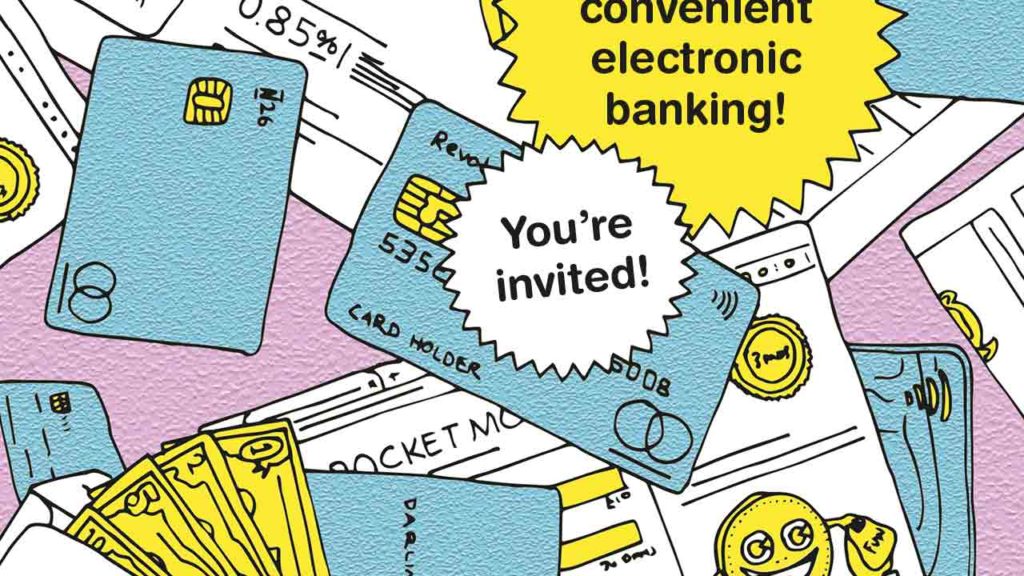
Mud Howard and Stephen Oram
Gather round and listen to two short stories emerging from the heady mix of sci-fi authors, scientists and the folk of Finsbury Park. Come and decide if these are the futures you want for your park?
Times: 11.30, 2.30
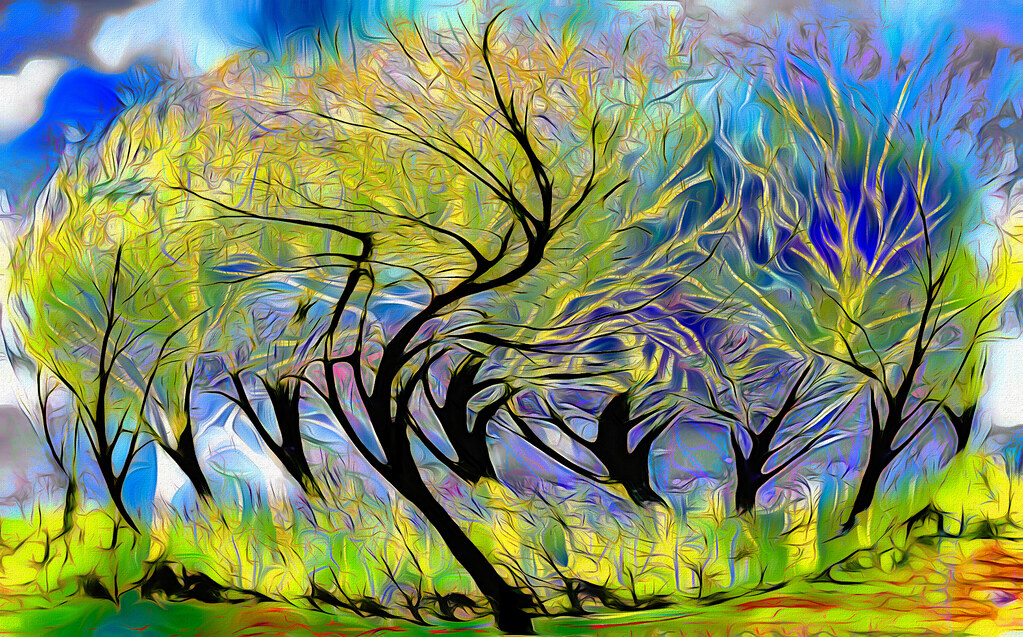
Idit Nathan and Helen Stratford
Take part in the launch of an entirely new app that leads you on a walk of the park that’s like no park walk you’ve ever been on before! This app was designed with local people through similarly silly strolls and we need YOU to bring it to life! Drop by and we’ll show you how to download the app (it’s very easy!) and collect a map that will help you ‘catch’ prompts all around the park. We’ll also have colourful badges for you to take home.
Times: 10.00-5.00
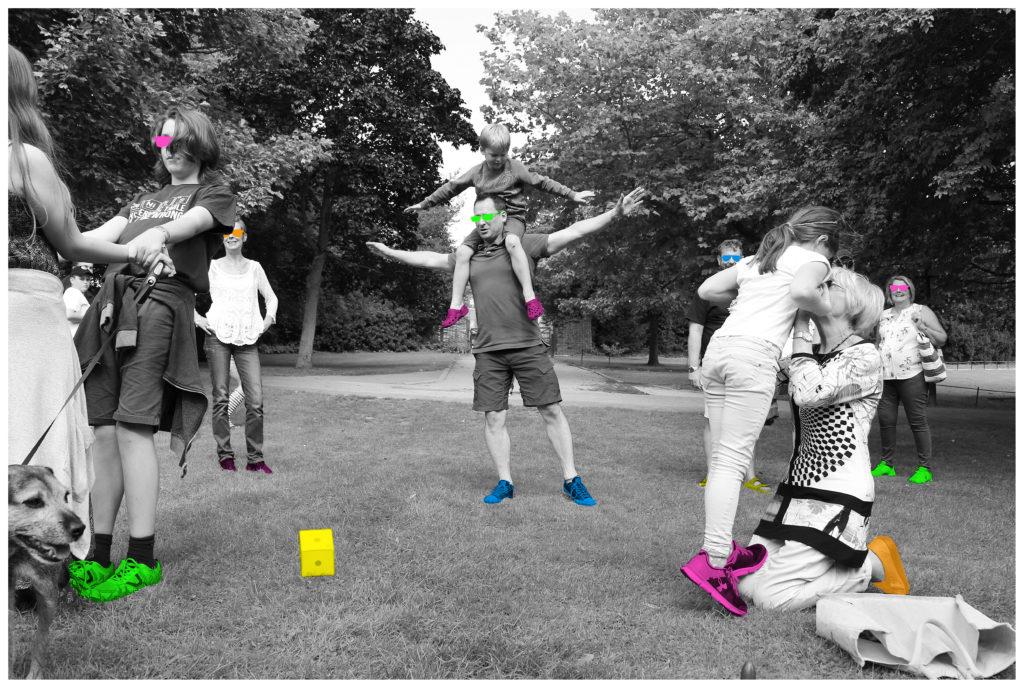
Jason Wilsher-Mills
Pedal Power, come meet Jason and the Argonauts – a set of wild and wacky AR-enabled characters who have come to visit you. Jason will show you how he made them and how you can help him make new ones all about the Pedal Power community. (this activity is especially for Pedal Power, but all welcome)
Times: 10.00-5.00
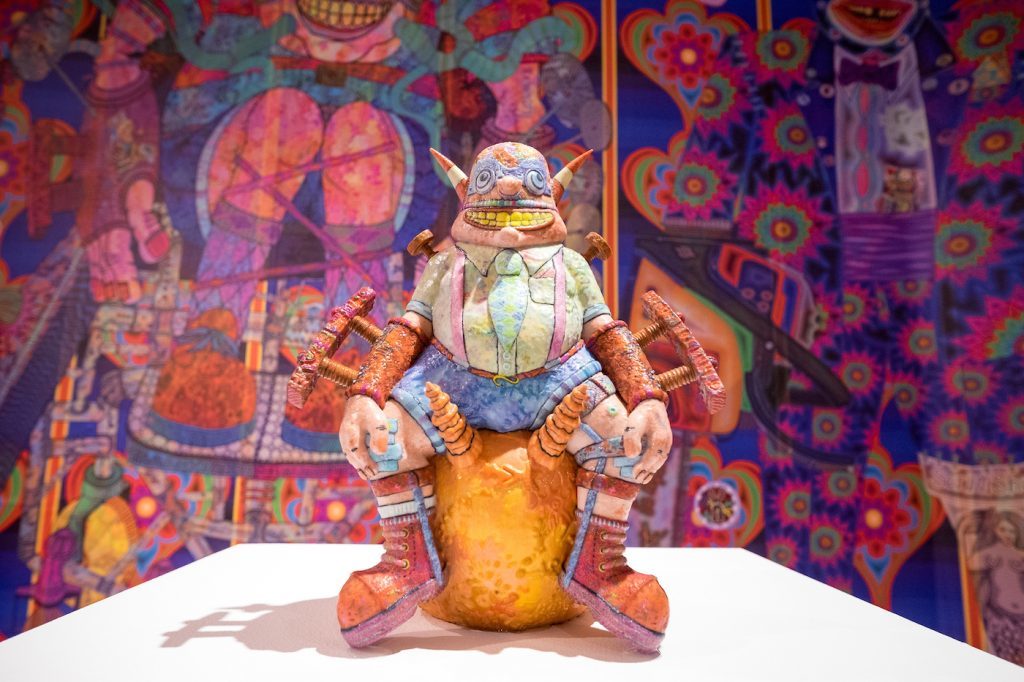
Alex Dayo
Drop by and join in a family-friendly Community Drumming workshop led by Alex Dayo, master drummer from Burkina Faso (West Africa), find your inner rhythm and let it out!
Times: 10.30, 4.00
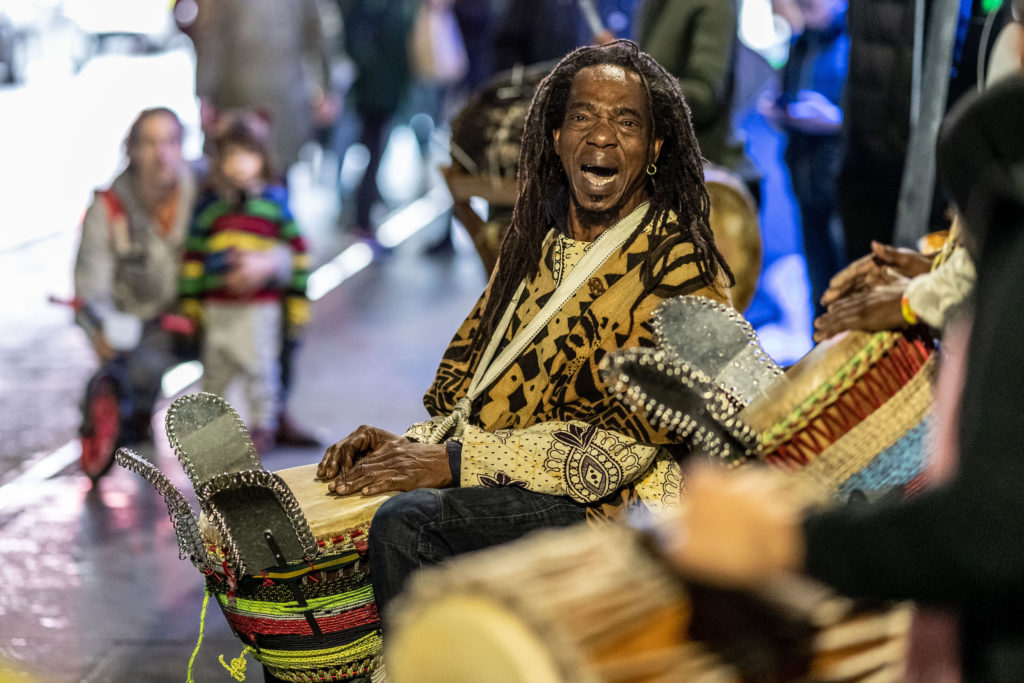
Possible Bodies: The Underground Division – Helen Pritchard, Jara Rocha, Femke Snelting
Join a research session with Possible Bodies: The Underground Division, a team of fiction writers, geo-techno-scientists and trans*feminist device problematizers. A hands-on collective investigation into the micro, meso and macro political consequences of earth scanning practices. Together we’ll look at what undergrounds are rendered when using techniques such as Terrestrial Light Detection and Ranging, magnetic resonance, UltraSound, and Computer Tomography.
Times: All day but limited places, book now

Feminist Internet
What have parks done for their communities? What role do they play in our lives both socially and politically? What kind of spaces could they be for us in the future? Feminist Internet launch a special episode of their podcast series and an accompanying zine for the Albion fair that unearths the history of Finsbury Park, examining the role urban parks play within their communities and speculates about their potential futures.
Times: 10.00-5.00
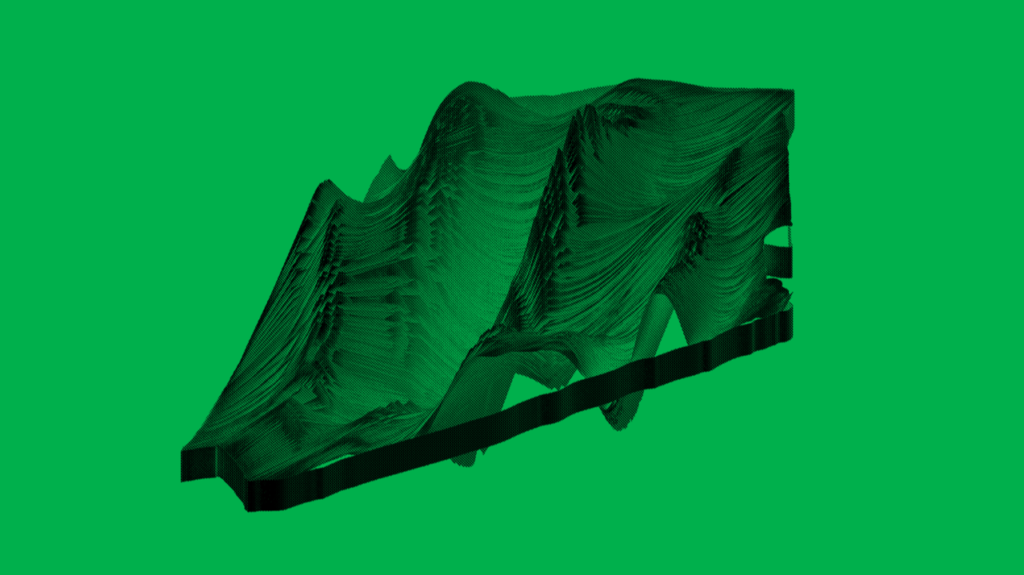
Larisa Blazic
It’s time to call this meeting to order! Join a special Theatre of the Oppressed inspired performance by reading aloud meeting minutes published by Finsbury Park’s many organisations and community hubs.
Times: 12.00-2.30
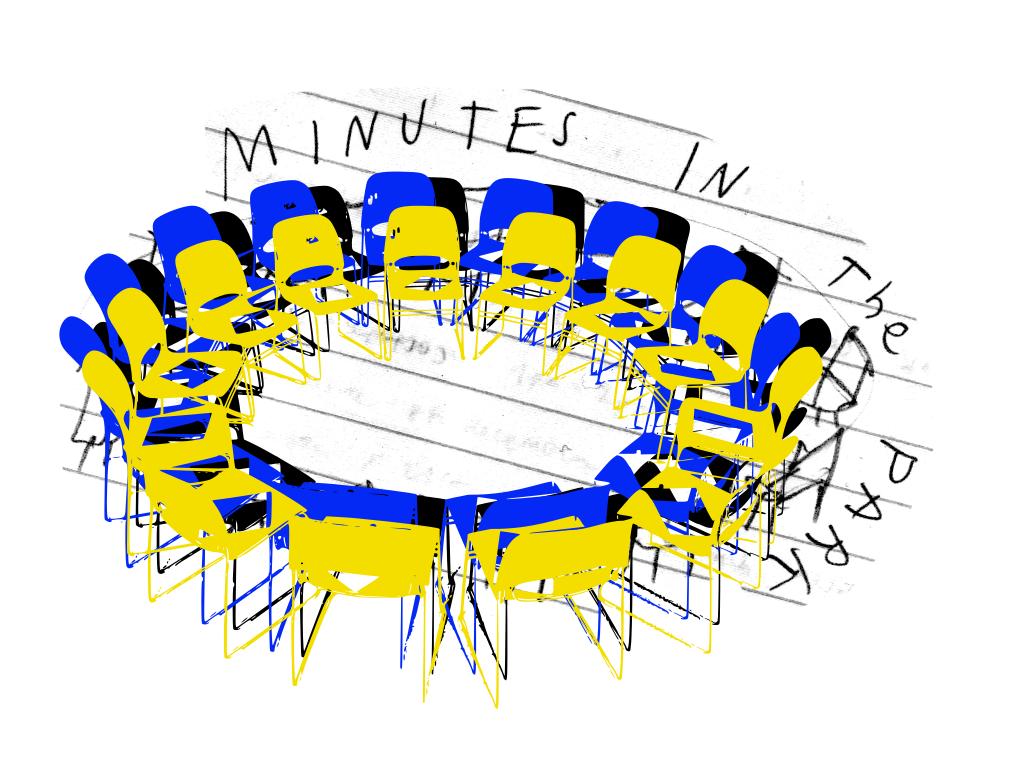
Sunara Begum
The ‘Who Am I?’ workshop is about reversing technology and reflecting on history through creativity. Design and create your own special crest and emblem to signify who you are. Investigate the world of sound through percussion-led music making and immerse yourself in the art of expression through movement. The workshop looks at understanding who we are, tapping into our inner self, asking questions, seeking answers and sharing personal and collective journeys.
Times: 10.00-5.00
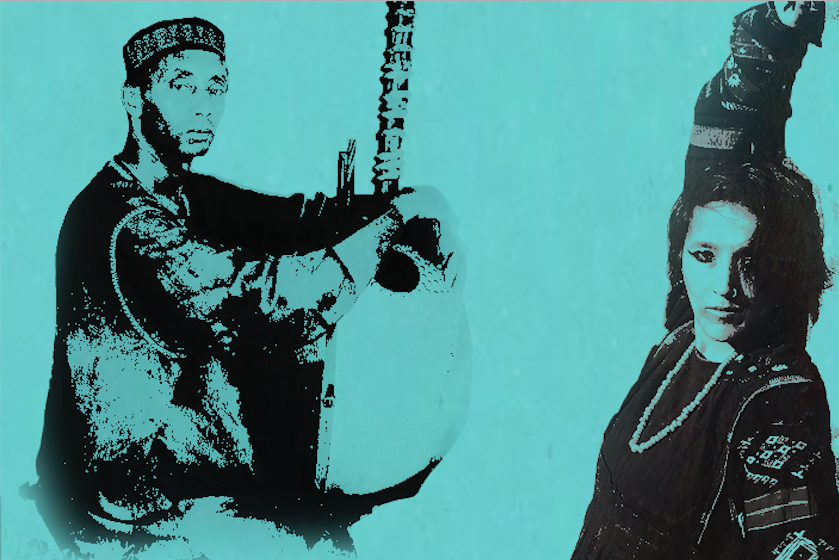
Artist: Alistair Gentry. Curators: Hannah Redler Hawes and Julie Freeman.
Just how trusting are you? Meet the hot-pink puppet-robot who wants to tell you all about your life online! How much will you reveal and how much does the trustbot know already?
Times: 10.00-11.30, 12.00-2.00, 3.00-5.00
This work was produced as part of an ODI R&D project funded by Innovate UK.
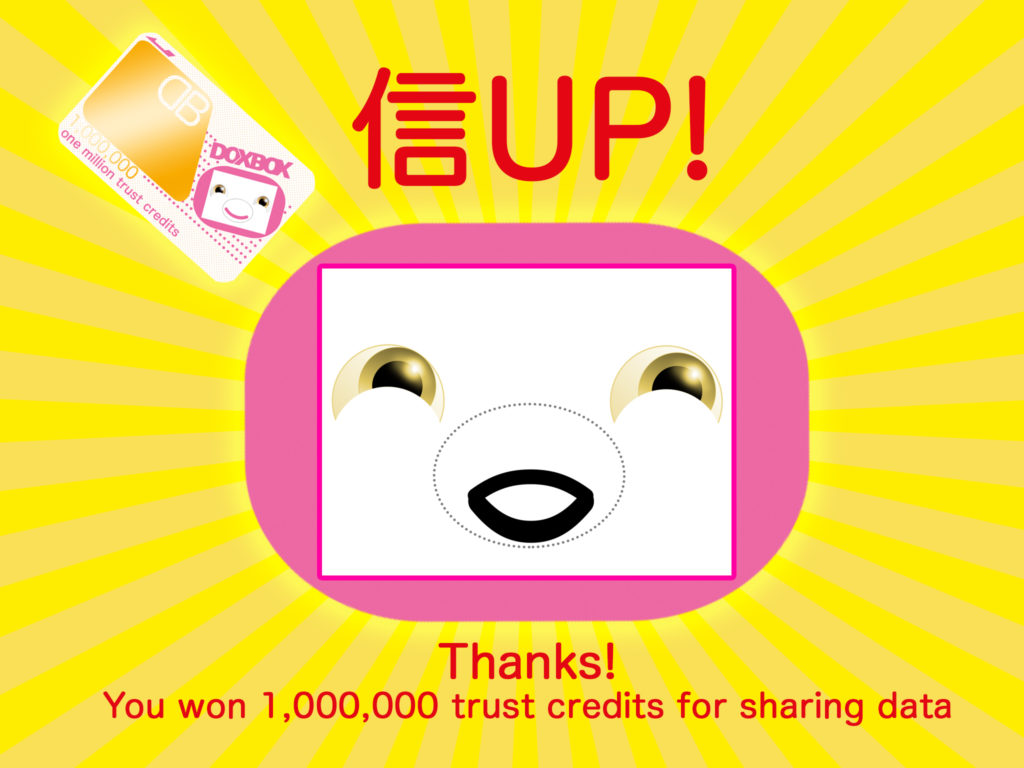
Rachel Jacobs
How will you dress fancy for the Future Machine? Rachel Jacobs needs your help to create a stylish parade for the unveiling of the Future Machine this autumn. What will you wear?
Times: 10.00-5.00
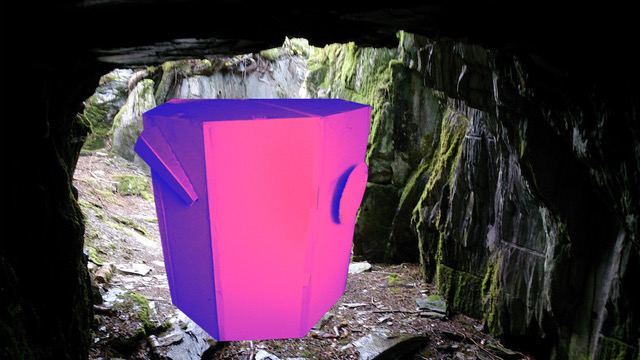
They Are Here
There will be a vegetarian and Halal barbeque on the go, with servings inspired by recipes from the refugees They Are Here have been collaborating with. Food will be offered in exchange for a sketch reimagining the transformation of the garden, this will inform the changes taking place in the Autumn.
Times: DJ 12.00-4.30. BBQ 1.00-4.30
Kathryn Davis, Dhelia Snoussi and Zey Kussan, Museum of London
What might future archaeologist say about us in the park? How right (or wrong!) could they be? Discover the left objects found in park through the Everything project, and see what connections you can make to you, the park and 2019.
Times: 11.00-1.00
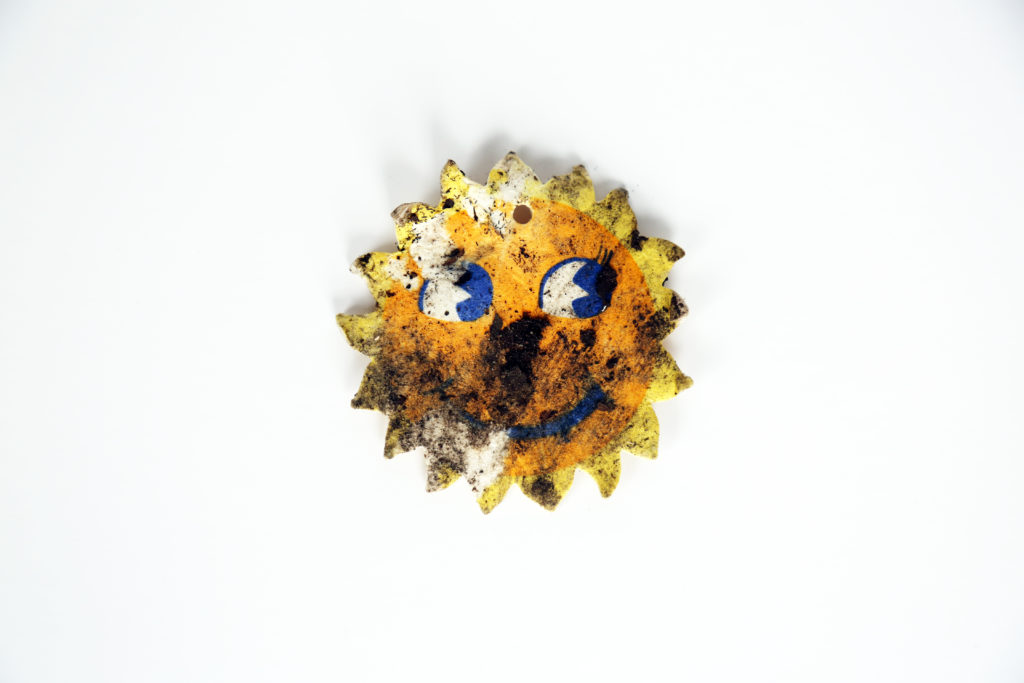
Andrew Smith, Goran Vodicka
Come and map your experiences of Finsbury Park and feed into research about urban parks and festivals.
Times: 10.00-5.00
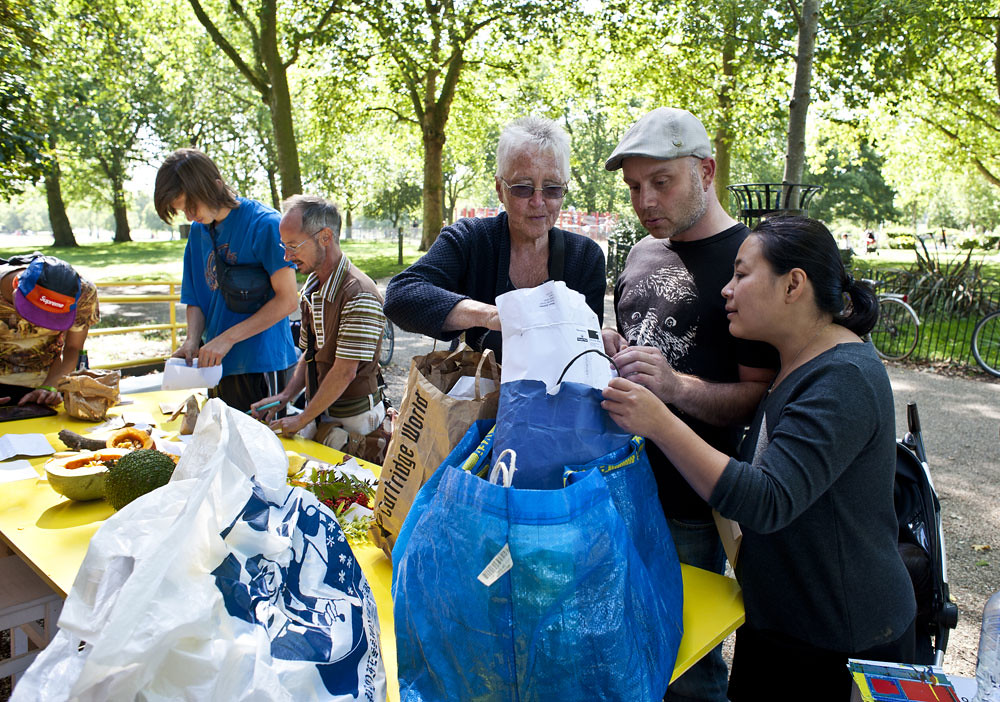
Featured image: Image by Studio Hyte, artwork in image by Jason Wilsher-Mills
Alex Dayo
Alex Dayo is a versatile composer, arranger and musician (he primarily plays percussion instruments), who was born in Burkina Faso, West Africa. Alex recalls growing up to the sound of drumbeats all around him – music has been part of his everyday life from birth, with instruments replacing childhood toys. His professional musical career started in the 1980s, accompanying the National Ballet Kouledafourou on tour as well as playing for African Royalty and globally-recognised dignitaries at private and public events and the Ensemble des Radios and Televisions of Burkina Faso, based in Bobo-Dioulasso. In 1985, Alex founded Fusion band Wountey, and, for fifteen years, toured with his band and the Ballet across Africa and Europe, spreading Burkina Faso’s cultural fusion to a wider audience. His musical collaborations include Ali Farka Toure, Femi Kuti and Salif Keita from Africa and traditional Master Griots from Burkina Faso/Mali/Guinea/Gambia. An accomplished arranger, Alex modifies his style according to the need, incorporating African traditional, Fusion, Jazz, Rock, Latin and Caribbean influences. A highlight of Alex’s career was being chosen to play at the Opening and Closing ceremonies at the London 2012 Olympics. As well as gaining British community music teaching qualifications, Alex developed his teaching skills working throughout Europe (Switzerland, Italy, Germany, Austria, Luxembourg, Belgium, France and Holland) and Africa and has played at numerous festivals and events, including Notting Hill and Hackney Carnivals, where he has performed for the past ten years.
Alistair Gentry
Alistair Gentry is a science fiction artist. He likes silly costumes, museums, absurdity, visiting the uncanny valley, the Oxford comma, and making machines do things their manufacturers wouldn’t approve of. DoxBox trustbot was developed during his embedded research residency at The Open Data Institute. Other recent projects include an imaginary tourist information agency and a technological ritual with televisions and credit card shredders.
Andrew Smith
Andrew Smith is a Reader in the School of Architecture and Cities at the University of Westminster. His background is in urban geography and one of his main research interests is the significance of organised events in post-industrial and entrepreneurial cities.
Goran Vodicka is a Research Fellow in the School of Architecture and Cities at the University of Westminster. He is an architect/urbanist and his research is broadly focused on diversity and inclusion in public spaces.
Feminist Internet
Feminist Internet is a group of artists and designers working to advance online and offline equalities for women and other marginalised groups through creative and critical practice.
Hannah Redler Hawes
Hannah is the director of the Data as Culture art programme at the ODI and an idneoendent curator. She specialises in art and technology, art and science and emerging artistic practice with an interest in participatory process. She develops interdisciplinary projects for galleries, museums, digital space and non-art contexts. Alongside her work with ODI she curates exhibitions, events and art interventions. Past projects have been with Science Gallery London, Tate Modern, Natural History Museum, FACT Liverpool, the Digital Catapult and the Institute of Physics. As an artist, Julie’s focus is the investigation of data as an art material, using it to create work that reflects the human condition through the analysis and representation of data. As a computer scientist and artist, Julie oftens works collaboratively and experimentally with scientists. Her work has been shown widely in the UK and internationally, and she has won awards from the Wellcome Trust, the Arts Council and Nesta. She holds a PhD in Media & Arts Technology from QMUL and is the founder of the Data as Culture art programme at the ODI.
http://culture.theodi.org/about/
Helen Stratford and Idit Nathan
Helen Stratford and Idit Nathan – Working collaboratively as Play Anywhere Now or Never! and combining backgrounds in theatre and architecture, Idit and Helen have worked in partnership with Wysing Arts Centre, Kettles Yard, Cambridge and METAL and in locations across the UK (Bristol, Sunderland, Peterborough, Southend and London). In 2015 they formulated Play The City Now or Never! (PCNN) working with METAL Peterborough and Southend to develop the PCNN App, a site-specific geo-locative App for mobile devices positioned at the intersection of art, play and technology. The PCNN App, like other low-tech resources they have developed, such as a compilation of games and scores as well as DIY die, solicits playful engagement with spaces and sites. Other recent and ongoing collaborative projects include developing a mobile artwork for Yorkshire Sculpture Park as well as walkshops for Cambridge Junction, Festival of Ideas Cambridge, CounterPlay ’16 Aarhus, Wellcome Trust, Live Art Development Agency and the National Theatre.
www.playanywherenowornever.com
Jason Wilsher-Mills
Jason Wilsher-Mills is a disabled digital artist who is based in the East Midlands, using iPads to create paintings which detail his disability, childhood memories, popular culture, social history/heritage, creating new biographical narratives, through theatrical artifice and humour. He initially painted traditionally, with oils, but since becoming disabled has found the iPad screen more manageable – affording him the opportunity to create large pieces of artwork, through high-resolution files, modern Giclée printing methods & projection methods. It has also given him the chance to work collaboratively, due to its connectivity and accessibility. The primary themes of his work include memory, childhood, disability and illness. In parallel to his own artistic practice Wilsher-Mills conducts public art commissions and residencies working primarily with learning disabled collaborators on wild and wacky interactive sculptures.
Larisa Blazic
Larisa Blazic is a London based digital artisan, educator and feminist hacker with practice ranging from net.art to FLOSS art and design. In her most recent work, Data Union Fork, part of Vertigo STARTS Residency, she explores collective response to personal data abuses by state and corporate sector and creates experiments based on technologies developed within the DECODE project and investigates local governance in Local&&Ledger project.
Martin Zeilinger
Martin Zeilinger is a London-based interdisciplinary researcher, curator, and media practitioner. Currently he works as Senior Lecturer in Media at Anglia Ruskin University (Cambridge/UK), and also serves as curator of the Vector Festival (Toronto/CAN). His research interests include digital art, appropriation-based art practices, experimental uses of financial technologies in contemporary art, theories of cultural ownership and intellectual property, political economies of new media, live coding and creative computing, videogame culture, and experimental game art.
Mud Howard
Mud Howard (they/them) is a gender non-conforming poet, performer and activist from the states. mud creates work that explores the intimacy and isolation between queer and trans bodies. mud is a Pushcart Prize nominee. they are currently working on their first full-length novel: a queer and trans memoir full of lies and magic. they were the first annual youth writing fellow for Transfaith in the summer of 2017. their poem “clearing” was selected by Eduardo C. Corral for Sundress Publication’s the Best of the Net 2017. mud is a graduate of the low-res MFA Poetry Program at the IPRC in Portland, OR and holds a Masters in Creative Writing from the University of Westminster. you can find their work in THEM, The Lifted Brow, Foglifter, and Cleaver Magazine. they spend a lot of time scheming both how to survive and not perpetuate toxic masculinity. they love to lip sync, show up to the dance party early and paint their mustache turquoise and gold.
Possible Bodies – Femke Snelting
Femke Snelting works as artist and designer, developing undisciplined research at the intersection of feminisms and free software. In various constellations she explores how digital tools and cultural practices might co-construct each other. She is member of Constant, a non-profit, artist-run association for art and media based in Brussels.
www.snelting.domainepublic.net
Possible Bodies – Helen Pritchard
Helen Pritchard is an artist and researcher, whose interdisciplinary work brings together the fields of Computational Aesthetics, Geography and Feminist TechnoScience. Helen’s practice is both one of writing and making and these two modes mutually inform each other in order to consider the impact of computational practices on our engagement with environments. Helen is the head of Digital Art and a lecturer in Computational Art at Goldsmiths, University of London.
Possible Bodies – Jara Rocha
Jara Rocha is an independent researcher/mediator who tends to attend to the semiotic-material urgencies of present cultures with a trans*feminist sensibility. Works with infrastructural politics and aesthetics, text logistics, body inscriptions and tests non-formal ways of learning in collective situations like Euraca Seminar, Las promesas de los algos, Relearn Summerschool, or The Darmstadt Delegation.
Rachel Jacobs
Rachel Jacobs is an artist, researcher and games designer. She co-founded the artist-led collective Active Ingredient in 1996 and the commercial games company Mudlark Production Company in 2007. She completed a Doctorate in Computer Science in 2014. Rachel is a practising artist exhibiting nationally and internationally, and a Research Associate at the Horizon Digital Economy Institute, University of Nottingham. Her artworks include the award winning ‘Heartlands (Ere Be Dragons)’ one of the first mobile games that took place on city streets in Sao Paulo, Yokhama, Berlin, Paris, Cambridge, Bristol and Nottingham; ‘A Conversation Between Trees’, a touring artwork and schools exchange using environmental sensors to connect forests in the UK and Brazil; and ‘The Prediction Machine’, an interactive installation that predicts the future impacted by climate change. Rachel is currently developing a series of artists interventions ‘Creating Rituals for When The Future Comes’, alongside a mobile interactive artwork the ‘Future Machine’.
Stephen Oram
Stephen Oram writes thought provoking stories that mix science fiction with social comment, mainly in a recognisable near-future. He is one of the writers for SciFutures and, as 2016 Author in Residence at Virtual Futures – described by the Guardian as “the Glastonbury of cyberculture” – he was one of the masterminds behind the new Near-Future Fiction series and continues to be a lead curator. Oram is a member of the Clockhouse London Writers and a member of the Alliance of Independent Authors. He has two published novels: Fluence and Quantum Confessions, and a collection of sci-fi shorts, Eating Robots and Other Stories. As the Author in Residence for Virtual Futures Salons he wrote stories on the new and exciting worlds of neurostimulation, bionic prosthetics and bio-art. These Salons bring together artists, philosophers, cultural theorists, technologists and fiction writers to consider the future of humanity and technology. Recently, his focus has been on collaborating with experts to understand the work that’s going on in neuroscience, artificial intelligence and deep machine learning. From this Oram writes short pieces of near-future science fiction as thought experiments and use them as a starting point for discussion between himself, scientists and the public. Oram is always interested in creating and contributing to debate about potential futures.
Sunara Begum
Originally from Bangladesh, Sunara Begum studied film and fine art in the UK and Yoga and Ayurveda in India. She lives between London and Lagos where she is the co-founder of several international arts initiatives including Chand Aftara, an artist’s collective dedicated to the exhibition and production of experimental cinema, New Horizons Africa, an annual music and arts festival and Living Legacies, Gambia’s first traditional music archive. Begum’s work has been widely exhibited in film festivals, museums, galleries and cinematheques worldwide. In 2017, her film Meditation on Stillness was selected as the Best Experimental Short at the Art Africa Film Festival and the Jury Grand Prize at the 21st Media City Film Festival. Her films are in the permanent collections of Dimbola Museum & Galleries (UK), Lionel Wendt Gallery (Sri Lanka), Centre for Contemporary Art (Nigeria), Drik Gallery (Bangladesh) as well as Central Saint Martins College of Art & Design. Sunara’s work is a highly personal expression of themes including gender, memory and migration with powerful imagery that evokes deep-rooted feelings of reflection, contemplation and stillness. Sunara has developed a visual language that is distinctly her own drawn from her unique lived experience, straddling the dialectics of east and west, cultural identity, femininity and the immutable polarities of displacement.
They Are Here
They Are Here (f. 2006) is a collaborative practice steered by Helen Walker and Harun Morrison. They are currently based in London and on the River Lea. Their work can be read as a series of context specific games. The entry, invitation or participation can be as significant as the game’s conditions and structure. Through these games, they seek to create ephemeral systems and temporary, micro-communities that offer an alternate means of engaging with a situation, history or ideology. In parallel, they initiate multiyear socially engaged projects that become generative spaces for further works. They Are Here work across media and types of site, particularly civic spaces.
Museum of London
Curating London will change how the museum collects 21st century London. It also seeks to recruit staff from a broader range of backgrounds and professional experience and puts Londoners at the heart of our collecting practice by working in partnership with local communities. From physical objects to interviewing Londoners about their own histories and memories, Curating London will capture, collect and record contemporary London.
The project started in April 2018 and runs until March 2022.
Each year the museum will begin four projects: three area studies of particular areas and one themed study that spans the whole of London.
https://www.museumoflondon.org.uk/discover/curating-london-collecting-community-contemporary-city
In partnership with AntiUniversity
Whether you smelt it, mine it, burn it, breathe it, or shove it up your ass the result is the same: addiction.
Addiction is defined as a chronic, relapsing earthly disease that is characterized by compulsive seeking and use of earth products, despite harmful consequences. It is considered a brain disease because humankind changes the earth—they change its structure and how it works.
Soft Sickness is a one evening/one day workshop hosted by the research project Shift Register exploring the signs, symptoms, circulations, exchanges, consumptions, dependencies, and management implicit in the multifarious and pathological dependence on the earth which is now named by that word “Anthropocene”. Earthly addictions produce quantified-earth self-portraiture, GIS co-dependencies, and all other variants of planetary narcissism. Earth-scale sensor systems and media networks, swathing the planet in information about itself, are unveiled with media from on- and off-planet earth science field-stations and reflections thereupon. Dependencies bring anxieties about the impending doom of resource dearths to come. People manage these anxieties with new psychotropic medications, whereas artists represent and markets bet on them, against the health of the earth and its living bodies.
Soft Sickness divines the earth lines of the often contradictory ingestion of and repeating addiction to the earth and its productions, data, memory — its circulations, seasons and natures, to the plants, the mushrooms and the animals, to fossil fuels, metals, to liquid screens and smogged surfaces, to longevity and, finally, to the real. To the thing and things which we cannot help doing (things to). To compulsively consume (the earth) is to eat and subsequently to excrete ourselves, humankind, and this cycle can be termed addiction. We feed from the earth, feeding back to the earth a world and mind-changing chemistry.
During the workshop, participants and invited guests will discuss, map, extract, ingest and excrete relations of local earth manifested in Finsbury Park in North London. Plant and pharmaceutical toxicities/ psycho-pharmacologies, poison cures, geophagic gastronomics, esoteric pollution sensing and embrace, and the invention and embedding of folkloric and human to non-human ecologies constitute parts of this invitation. We will gather psycho-active dew, imagine tales for the mole people, bake bread for crows, and make the earthworlds flesh.
We wish to develop contemporary rituals articulating the polarised and overgrown junk-tions of shamanic spirit journeyings with addiction managements; cold kicking the earth habit or indulging absolutely in the (cannibal/capital) undergrounds and (fairie) overgrounds.
SHIFT REGISTER is a research project investigating how technological and infrastructural activities have made Earth into a planetary laboratory. The project maps and activates local dynamics and material shifts between human, earthly and planetary bodies and temporalities. Contemporary, mainstream science and technology are intersected with other knowledge systems to attempt a reconfiguration of relations between humans and the earth. SHIFT REGISTER is Jamie Allen, Martin Howse, Merle Ibach, Jonathan Kemp and Martin Sulzer at the Critical Media Lab, Basel.
From the self-made celebrity of the Instafamous to the personal live-streaming of gamers, online sites of spectatorship are the emerging factories and playgrounds of the 21st century. We shop, share, and produce online, 24/7. As we do we alter the processes of how we work, what is viewed as a product, and our sense of self: work is like play and labour is seemingly without work. Playbour– Work, Pleasure, Survival, is dedicated to the study of the worker as they are asked to draw on internal resources and self-made networks to develop new avenues of work, pleasure and survival.
Over the three days we will form a community-led action research lab that brings together artists, researchers, data scientists, and activists, as well as community participants in an ambitious and intensive programme of experiments, interventions and performances. Led by a diverse community, and working towards a group exhibition at Furtherfield in July 2018, we will explore the converging spaces of work, play and well-being, as well as examine the role of the worker in the age of the Internet.
Playbour– Work, Pleasure, Survival, is an art and research platform dedicated to the study of the worker in an age of data technologies. Our first event is a three-day lab at Furtherfield Commons and we are currently welcoming submissions for people to join us!
We are looking for applications from a range of applicants artists, designers, researchers, curators, and activists, with an interest in the relationship between arts, technology, and design, and who are working on an art or research project relating to shifting realities of work, the worker, and the self, via cognitive capital, digital labour, play and entertainment spaces.
We will explore the contours and value systems we place on work, play, and well-being, and use this to work towards an exhibition at Furtherfield opening mid-July, 2018.
Each day will consist of three sessions DISCUSS, TEST, and PLAY, convened and co-led by artists, academics, designers, and activists. Participants will critically analyze and thoughtfully engage in conversations, conduct research with “workers”, test out ideas through hands-on making activities, and engage in play-driven interventions and performances. Then working in groups, develop the foundation for newly commissioned works for the upcoming exhibition at Furtherfield gallery in July 2018.
Friday 25 May, Playbour, will examine shifting realities of work and professionalism in play and entertainment spaces. Participants will DISCUSS with sociologist Dr. Jamie Woodcock (Oxford Internet Institute) and explore the concepts of playbour, digital labour, immaterial labour, and cognitive capitalism – linking these explicitly to work and play through the example of video games. We will then CONNECT with live streamers. In the afternoon, we will PLAY in a “collective empathy” session with artist Steven Ounanian looking into how pain and suffering are experienced in online contexts.
Saturday 26 May, Body/Machine/Capital, investigates data-driven decision making and the colonisation of body and machine via capital systems. The first half of the day will DISCUSS and TEST with special guests. Later that day participants will begin to develop their “game installation” projects.
Sunday 27 May, Unwitting Extraction, participants will DISCUSS and develop their “game installation” with architect Dr. Itai Palti. Using behavioural science and data technology participants will TEST ideas and thinking for game-based installations through a scientific lens in anticipation of the Furtherfield exhibition. This will be followed by a group lunch and feedback session with Dani Admiss and illustrator, Maz Hemming. To apply for a place please submit your application by midnight GMT Sunday 25 April 2018, to info@workpleasuresurvival.org
A complete application must include the following:
The lab has been organised with its partner Furtherfield Gallery as a pre-event to the Playbour– Work, Pleasure, Survival, exhibition opening in Friday 13 July 2018.Curated by Dani AdmissConcept development Dani Admiss and Cecilia Wee
Playbour – Work, Pleasure, Survival, is realized in the framework of State Machines, a joint project by Aksioma (SI), Drugo more (HR), Furtherfield (UK), Institute of Network Cultures (NL) and NeMe (CY).
This project has been funded with the support from the European Commission. This communication reflects the views only of the author, and the Commission cannot be held responsible for any use which may be made of the information contained therein.
VoiceOver Finsbury Park is a social radio project about the future of life in London. We have invited our neighbours in Park House, right across the road from Furtherfield Commons in Finsbury Park, to make short broadcasts about their lives and to express their ideas about the city’s future. Everyone in Park House shares a geographical viewpoint over London but everyone has different experiences of living in this city.
Residents are creating a temporary, hyper-local communications network by installing in their homes a series of light antennae, LED nodes and radio boxes designed by Umbrellium. These nodes create a network of light and sound that can be heard and seen all by participants.
The aim of the project is to create a temporary communal communication space that gives neighbours, who may never otherwise meet, a way to share a glimpse each other’s lives; for people to trust each other with their dreams for their global city.
VoiceOver Finsbury Park culminates in a takeover of a gallery in the Museum of London at the end of February 2018, where visitors will be able to listen to the voices, thoughts and interactions from Finsbury Park residents captured by the installation. Until then the broadcasts can only be heard by participants but you can follow the project on twitter on the #VoiceOverFinsburyPark hashtag.
VoiceOver Finsbury Park is is produced by Furtherfield & Umbrellium.
The Museum of London ran a competition looking for creative responses to An Idea for a Future London. They were looking for community projects that would imagine the London of the future. VoiceOver Finsbury Park is the winning idea from Umbrellium and Furtherfield
An Idea for a Future London is co-commissioned by the Museum of London and Thirteen Ways for City Now City Future. Supported by Arts Council England.
Umbrellium designs and builds urban technologies that support citizen empowerment and high-impact engagement in cities. www.umbrellium.co.uk
VoiceOver Finsbury Park is a development on the Umbrellium project VoiceOver East Durham, commissioned by East Durham Creates and produced by Forma. An Idea for a Future London is co-commissioned by the Museum of London and Thirteen Ways for City Now City Future, and supported using public funding by Arts Council England.
Award winning writer, director and actor Christine Entwisle is working with the residents to create a final broadcast which will be recorded and exhibited in the Museum of London. Christine Entwisle won the BBC writers prize for her radio play doyouwishtocontinue in 2015 and the BBC Audio Drama Award 2017 for Secret Kebabs. She also won the Funny Women Award 2015 writers prize and co wrote and directed a new series of webisodes Extreme Fairy.
State Machines is a programme of activities devoted to the investigation of new relationships between states, citizens and the stateless made possible by emerging technologies. Focussing on how such technologies impact identity and citizenship, digital labour and finance, the project joins five experienced partners – Aksioma (Slovenia), Drugo more (Croatia), Furtherfield (UK), Institute of Network Cultures (Netherlands) and NeMe (Cyprus) together with a range of artists, curators, theorists and audiences.
www.statemachines.eu
Every time a smartphone powers up, their user is tied inextricably into data, laws and flowing bytes to different countries. Their every personal expression is framed and mediated by digital platforms which now include those operating new kinds of currencies, financial exchange, and labour relations that bypass corporations and governments.
Meanwhile these same technologies increase governmental powers of surveillance, allow corporations to extract ever more complex working arrangements, and, although seemingly the epitome of globalization, they do little to slow the construction of actual walls along actual borders.
We ask how might the digital subjects of today become active, engaged, and effective digital citizens of tomorrow?
State Machines now launches an open call for a new commissioned artistic project.
We are interested in works that explore shifts in agency towards individuals, groups and commons from nation states and private companies. We invite proposals that draw on first-hand experiences in:
The call is open to artists, technologists, activists, inventors and individuals, groups and hybrid human- artificial intelligence collaborations.
We are interested in all art forms and actions that can be encountered and experienced across networks, online and in physical exhibition. We welcome diverse viewpoints, experimental and playful approaches.
Applications must be received by 23:59 (CET) on Wednesday 31 January 2018.
Complete application must include the following:
Please send ONE .pdf format including materials 1-4 above to marcela@aksioma.org.
For >5MB attachments, please use file transfer services like Wetransfer or provide a link to your own server space.
This project has been funded with the support from the European Commission. This communication reflects the views only of the author, and the Commission cannot be held responsible for any use which may be made of the information contained therein.
7 – 8.30pm – Introduced by Ruth Catlow and Janez Janša
We invite you to join us for the screening of the documentary film My Name is Janez Janša (2012) as part of Identity Trouble (on the blockchain) the second event in the DAOWO blockchain laboratory and debate series for reinventing the arts. The film will be introduced by Ruth Catlow and Janez Janša, director of My Name is Janez Janša.
“The system of reference of names started to crack … This made me reflect on issues such as identity vs identification, multiplicity vs multiplication, the name as an interface between the private and the public, and the personal name as a brand.” – Janez Janša, Director of My Name is Janez Janša.
Following the second DAOWO workshop, we present this film about names, identity, and pseudonymity in a long history of academic, artistic and popular identity play for political and personal reasons. In 2007 three artists changed their names to that of Janez Janša, the then Prime Minister of Slovenia, whilst remaining ambiguous about their reasons. This documentary film reflects on the subjective and public meaning and utility of a person’s name and documents the interpretations and responses provoked by journalists, the general public and the “original” Janez Janša.
The Janez Janša® exhibition is on display at Museum of Contemporary Art Metelkova, Ljubljana, 18 October 2017 — 08 February 2018
The DAOWO programme is devised by Ruth Catlow (Furtherfield) and Ben Vickers (Serpentine Galleries & unMonastery) in collaboration with the Goethe-Institut London, and the State Machines programme.
This project has been funded with the support from the European Commission. This communication reflects the views only of the author, and the Commission cannot be held responsible for any use which may be made of the information contained therein.
Artist collective THEY ARE HERE invite you to play with and test software that allows wireless-enabled computers and mobile devices to directly form a spontaneous communication network independent of the internet.
Across a series of drop-in sessions facilitated by THEY ARE HERE, games and experiments will be trialled as part of the development process for their forthcoming exhibition at Furtherfield in October 2016.
These activities will take place online & offline around Finsbury Park.
Please bring a wi-fi enabled device to the workshop and if possible download the software Qaul.net in advance (qaul.net/software.html.)
No experience is necessary. Each session will be a discrete event, so you can attend as many or as few as you care to.
Join THEY ARE HERE at any of the following meetings at Furtherfield Commons, Finsbury Gate, Finsbury Park.
Session 1: 3pm Sunday 14th August 2016
Session 2: 3pm Sunday 28th August 2016
Session 3: 3pm Sunday 11th September 2016
Session 4: 3pm Saturday 24th September 2016
You must be aged 16 yrs +
Email contact(at)theyarehere.net for further information.
Join us on August 4th between 6 and 6.45 for an exhibition tour by Gretta Louw at the Furtherfield Gallery.
Then from 7-8pm, we will continue at Furtherfield Commons with Your Emojis Are Not Innocent: Selfies and Alterity, a presentation by Louw, in which she will present her upcoming collaboration with Warnayaka Art Centre to create a Warlpiri selfie and photo editing app, and a discussion about how selfies, social media, and alterity can be used for social good.
Gretta Louw is an artist, writer, and curator working predominantly with digital media, social practice, and networked performance, whose work explores the potential of art as a means of investigating cultural and psychological phenomena, particularly in relation to new technologies and the internet. For the last five years she has been deepening her research into cultural change brought about by, or happening in interaction with, digitalisation. She has a long standing collaboration with the Warnayaka Art and Cultural Aboriginal Corporation, a Warlpiri First Nations art centre in the remote community of Lajamanu in central Australia. The current exhibition at Furtherfield Gallery, Networking the Unseen, is a curatorial project born out of Louw’s collaboration with Warnayaka and Warlpiri artists like Neil Jupurrurla Cooke, Isaiah Jungarrayi Lewis, and Sharon Nampijinpa Anderson. The exhibition investigates themes of digital colonialism, contemporary indigeneity, digital and media art from outside the urban mainstream, and the ways in which digital media can be used either to perpetuate inequality or as a tool of social empowerment.
FREE – Limited places, booking essential (register)
Exhibition Tour and Artists Talk (Neil Jupurrurla Cook and Gretta Louw)
Meeting point: Furtherfield Gallery
Join Neil Jupurrurla Cook, artist and Director of the Warnayaka Art and Aboriginal Cultural Corporation, and Gretta Louw, artist and curator, for a curated tour of Networking the Unseen and then head down to Furtherfield Commons for a Show and Tell about their collaboration and work.
FREE – Limited places, booking essential
Contemporary indigeneity, understanding Warlpiri (Australian First Nations) culture and law – and how these encompass art-making, and the relationship between tradition, culture and technology. Join Gretta Louw, Neil Jupurrurla Cook, and Warlpiri scholar and educator Wanta Jampjinpa Patrick, in an informal discussion and presentation on these and other themes at Furtherfield Commons. A Q&A session moderated by Furtherfield directors Ruth Catlow and Marc Garrett will open up the floor to visitors.
At the talk at Furtherfield Commons, there will also be a rare opportunity for Furtherfield visitors to purchase a painting, ethically sourced and sold directly by the Aboriginal-owned art centre. This curated selection of canvases are by some of Warnayaka Art Centre’s most acclaimed artists, including senior law women Lily Nungarrayi Hargraves, Rosie Napurrurla Tasman, and Molly Napurrurla Tasman.
DOWNLOAD PRESS RELEASE (.pdf)
SEE IMAGES FROM THE PRIVATE VIEW
Furtherfield Gallery is proud to present Dimensioning – Live Architecture an exhibition of new digital artworks by Italian artist Chiara Passa, part of Furtherfield’s Open Spot programme.
Passa’s concept of «super places» and her search for new dimensions, or “campo piu’ in là” (a “further field”) underpin her work using architecture as an interface to understand the possibilities of the digital dimension. She uses augmented and virtual reality (AR & VR) to create interactive installations in which the technologies punch through and pull out a new sense of place in combinations of interior, architectural and natural environments.
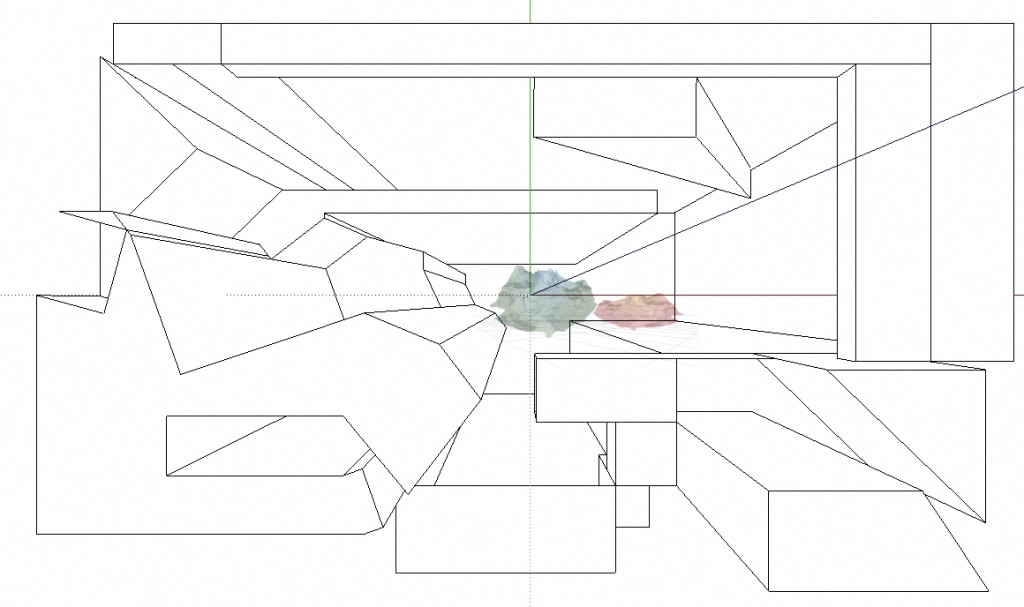
In this exhibition visitors can explore her new digitally mediated perception of space and time in an animated multi-dimensional ‘trompe l’oeil’ of the gallery rooms as 3D wireframe view. Visitors stand in the middle of the “window-camera” view of the software, which has also been used to build the animations on display. They use augmented reality to “travel through” the walls, into the diagrams.

“Worlds open the doors to other worlds and synthetic shapes become design, structure, architecture and reality.”
Passa’s work offers a refreshingly passionate approach to experimental and philosophical play with technologies. We think that this is especially valuable in an age where our expressive range and behaviour is increasingly pre-determined by the digital tools, techniques and devices that we use daily, and the interests, experiences and values of those who create them.
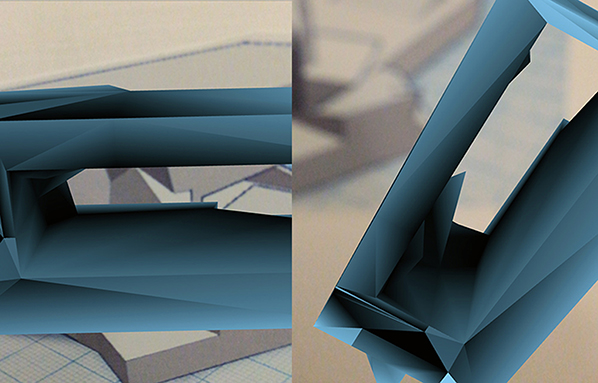
Also for this exhibition visitors will experience her VR 3D animation using a Google Cardboard viewer.
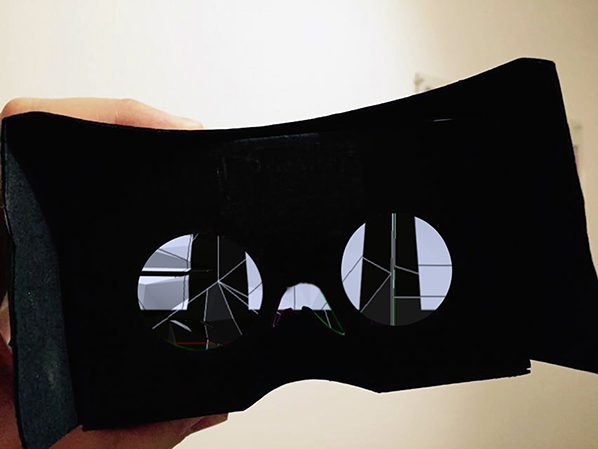
Chiara Passa talks about Dimensioning – Live Architectures at Furtherfield Gallery in the video below
Chiara Passa, media artist (Rome 1973). Graduated at Fine Arts Academy of Rome; master in new audio-visual mediums at the Faculty of Modern Literature.
Her artwork combines many media and platforms analysing changes in ‘liquid space’ through a variety of techniques, technologies and devices – often constructed using augmented reality and the virtual reality technologies. She works with animation and interactive video-installation; digital art in public space as site-specific artwork and video-mapping; video-sculptures and objects; art-applications and widgets for mobile platforms.
She explores the potentials offered by the intrinsic languages of these emerging platforms to experimenting in a rigorous and personal way with the full expressive range and “unknown creative possibilities that the new media are continuously offering to me”. She received the E-Content Award (2012). Her work is regularly exhibited internationally in galleries and at festivals, conferences and institutions including ISEA, Vortex Dome (USA), Media Art Histories Conference (DE), Electrofringe (AU), FILE | Electronic Language International Festival(BR), CCCB – Centro de Cultura Contemporània de Barcelona (ES).
Furtherfield is a leading organisation for art, technology and social change. Furtherfield Gallery and Commons spaces in the middle of London’s Finsbury Park explore complex themes relating to digital culture, inspiring diverse people to get involved with arts and technology on their own terms. Debate is facilitated amongst an active international community of artists and thinkers via online platforms, combined with accessible art shows and labs to enable co-creation and widen participation. Furtherfield is a not-for profit, artist led organisation, an Arts Council England National Portfolio organisation, supported by Haringey Council.
The Furtherfield ‘Open Spots’ programme of self-initiated and self-funded exhibitions and events support the presentation of new work and artistic invention, to discover new perspectives on the horizon of a wider networked society.
Curators and artists that meet Furtherfield’s selection criteria can showcase work at Furtherfield Gallery in the heart of London’s Finsbury Park. Open Spot projects can reach a new, diverse audience of gallery visitors, park users and Furtherfield’s online participants.
London’s Permaculture Design Course – Spring Into Action! and Design 4 A.C.T.I.O.N (Active Community Transformation In Our Neighbourhoods) are a different kind of permaculture course – positive design for your life, your community and your world by empowering the genius inside all of us! The format is participatory and dynamic, using diverse visual, audio and kinesthetic learning methods such as group work, games, problem solving, discussion, observation, field trips, practical activities, lectures and slideshows during course sessions. This course will be hosted at The Furtherfield Commons in Finsbury Park, a new and exciting partnership project:
‘We believe that through creative and critical engagement with practices in art and technology people are inspired and enabled to become active co-creators of their cultures and societies.’
Led By: The course will be taught by Graham Burnett (Dip. Perm Des), Claire White (Dip. Perm Des), James Taylor (MSc. Human Ecology) and some great guest teachers.
Cost: We are pleased to announce that we are holding our course fees for another year £780 full cost, £580 – Individual, waged (income less than £25k), £380 concessions/low waged.
The booking form for the course is now live and we are accepting participants.Please note that this course is not organised by Spiralseed – all queries re. booking and accommodation should be made to the course organisers.
In 2016 Ruth Catlow and Ben Vickers led the symposium, Blockchain’s Potential in the Arts, hosted by the Austrian Cultural Forum. This symposium sought to bring together individuals from across the arts nationally to highlight and discuss the potential future impact of blockchain and encourage early engagement.
The award-winning DAOWO series was subsequently devised by Catlow and Vickers in collaboration with the Goethe-Institut London, and the State Machines programme. It is intended as a form of active engagement in these rapidly unfolding technical and socio-economic developments. Its title is inspired by a paper written by artist, hacker and writer Rhea Myers called DAOWO – Decentralised Autonomous Organisation With Others.
What does blockchain mean for the arts?
‘What seems to emerge is a potential for blockchain to devolve mechanisms and processes for funding artists, as well as allowing various players in the arts ecosystem – artists, collectors, viewers, curators, and others – to define how they want to interact, with the possibility that sharing and artwork almost merge, or at least become as two sides of the same coin.”
U. Kanad Chakrabarti
Focused on establishing greater cooperation between the arts and blockchain industry, leading researchers and key artworld actors discuss the current state of play. DAOWO Discussions focus on potential cultural and social impacts, technical affordances and opportunities for developing new blockchain technologies for fairer, more dynamic and connected cultural ecologies and economies.
This series brings together artists, musicians, technologists, engineers, and theorists to join forces in the interrogation and production of new blockchain technologies. Our focus will be to understand how blockchains might be used to enable a critical, sustainable and empowered culture, that transcends the emerging hazards and limitations of pure market speculation of cryptoeconomics.
As the DAOWO series unfolds each lab works across a spectrum of themes and domains of expertise, breaking down silos and assumptions about what these technologies might mean.
The aim is to birth a new set of experimental initiatives which can reinvent the future of the arts as we know it.
1-6pm Thur 28 Feb – Inspace, Edinburgh, in partnership with Department of Design Informatics at the University of Edinburgh, New Media Scotland.
Edinburgh Programme Summary
For more DAOWO activities see our Events page.
Hazar Emre Tez has created Sonic Tunnel as a delightful and innovative solution to wayfinding in Finsbury Park. Come and explore the park following a sonic route that has been created using strategically placed speakers to broadcast sounds as an alternative to traditional visual signage.
Hazar Emre Tez is a musican, performer and engineer. After his master degree in Universitat Pompeu Fabra – SMC, he started his PhD in Queen Mary University of London, Media Arts and Technology. Currently, he is working on interaction and sound design, he has programming skills and is making electroacoustic music.
Start your visit on the surroundings of Furtherfield Commons – view map
Finsbury Gate – Finsbury Park
London
Furtherfield in partnership with MAT PhD programme, Queen Mary University.
Leave your money at home and use your personal data to buy, sell, or barter for a delicious range of commodity experiences at the MoCC Free Market. Local residents, park visitors, and online participants are invited to share how they value shopping and trading, in the street, and on their devices. In doing so, you’ll be helping us to develop a radical new artwork for exhibition at Furtherfield Gallery in September 2015. Come along to Finsbury Park and find out more.
Entrance is free on production of a MoCC loyalty card, available on arrival.
Watch out for the MoCC Roaming Marketeer to claim your reward vouchers.
Follow the event @moccofficial and find out more about online involvement.
This event is part of the research and development process for Museum of Contemporary Commodities, MoCC produced in partnership with Furtherfield, and supported by Islington Council, All Change Arts, ESRC and University of Exeter.
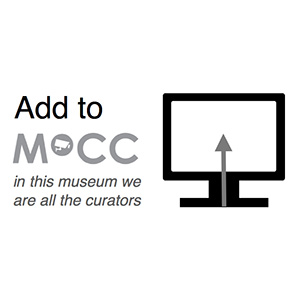
Add your valued commodities to Museum of Contemporary Commodities and help us test out our interaction prototype.Warm up with a Virtual Shopping trip, where you can map and discuss your trade and exchange habits with family, friends and strangers. Find out detailed information on the provenance, materials and trade-justice issues contained within your chosen commodity through a Live Chat with our expert Commodity Consultants. Upload your commodity to the MoCC database, and help curate MoCC in Finsbury Park.
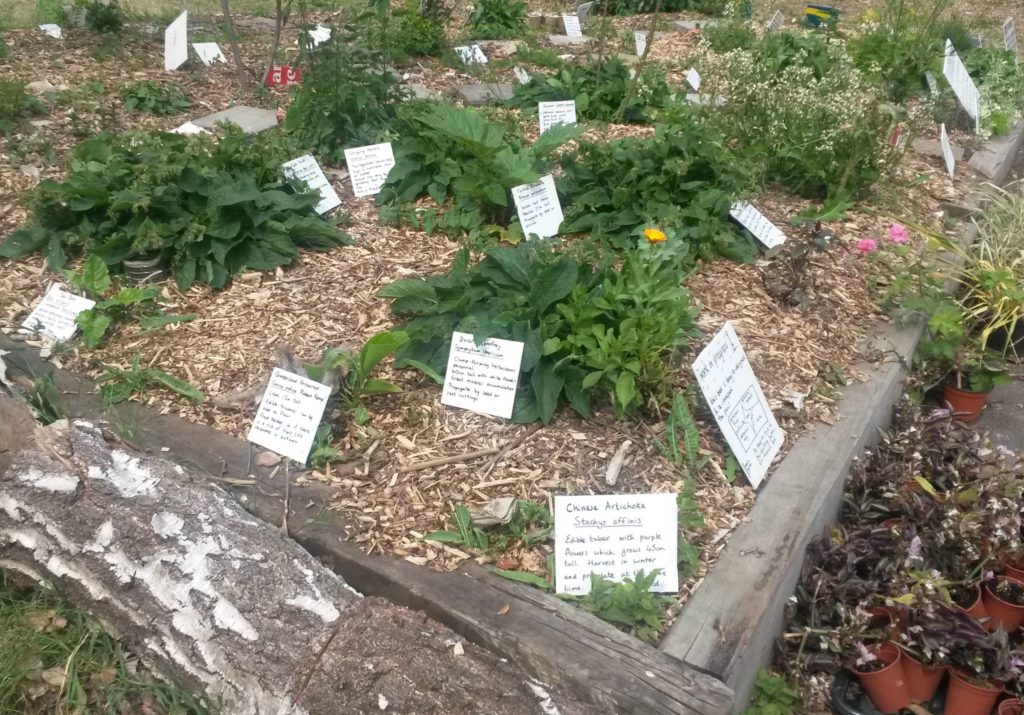
A volunteer-cooked free meal, from the Edible Landscapes PACT kitchen, near to the Manor House gate. Trade your data for a free delivery of your meal, or organise your own pickup free of charge. www.ediblelandscapeslondon.org.uk (Friday only)
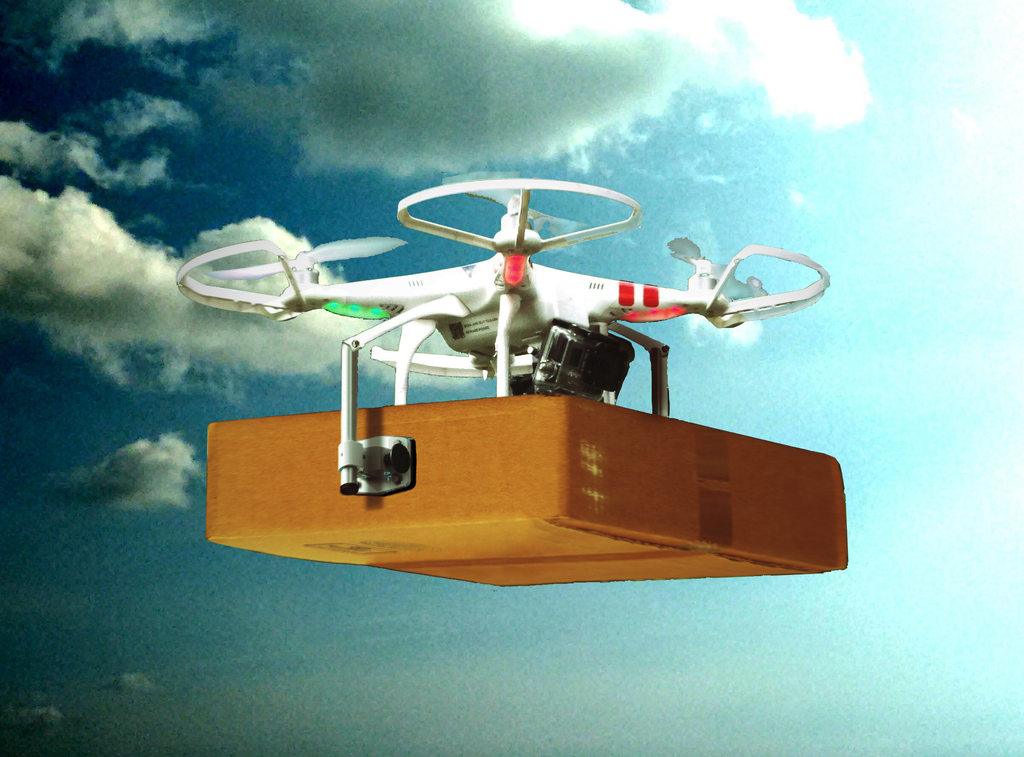
Discover your future through the Forebuy service. We will scientifically predict your next most urgent desire and discover in real time which affordable and amazing product is ready and waiting for you. Stop by and discover unexpected treasures from Finsbury Park surroundings whilst chatting about needs and algorithms.
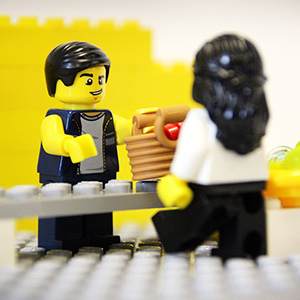
Use LEGO re-creations to turn your data and commodity stories into animated gifs, whilst sharing your experiences of local trade and exchange with Finsbury Park locals.
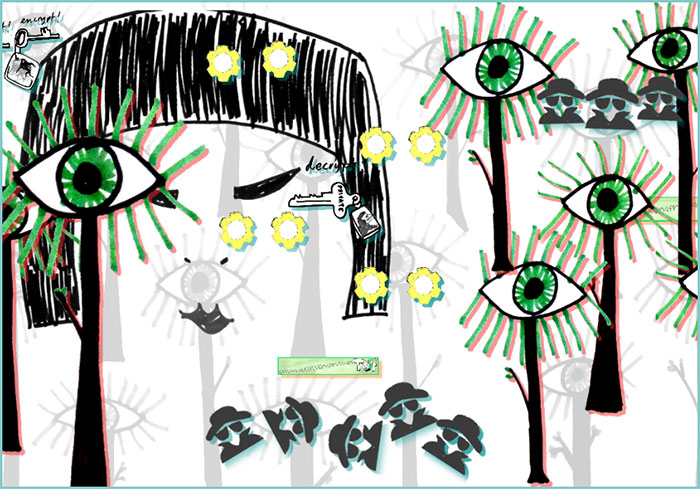
A 3 day event for all the family to draw, make and play online games for the future of the park for the health and prosperity of all…or for total catastrophe. It’s all about the future these days. So take a drawing challenge and imagine a different future. Share your vision and see it turned into free online games to play, remix and share. Developed by Ruth Catlow (Furtherfield) and Dr Mary Flanagan (Tiltfactor) www.playyourplace.co.uk
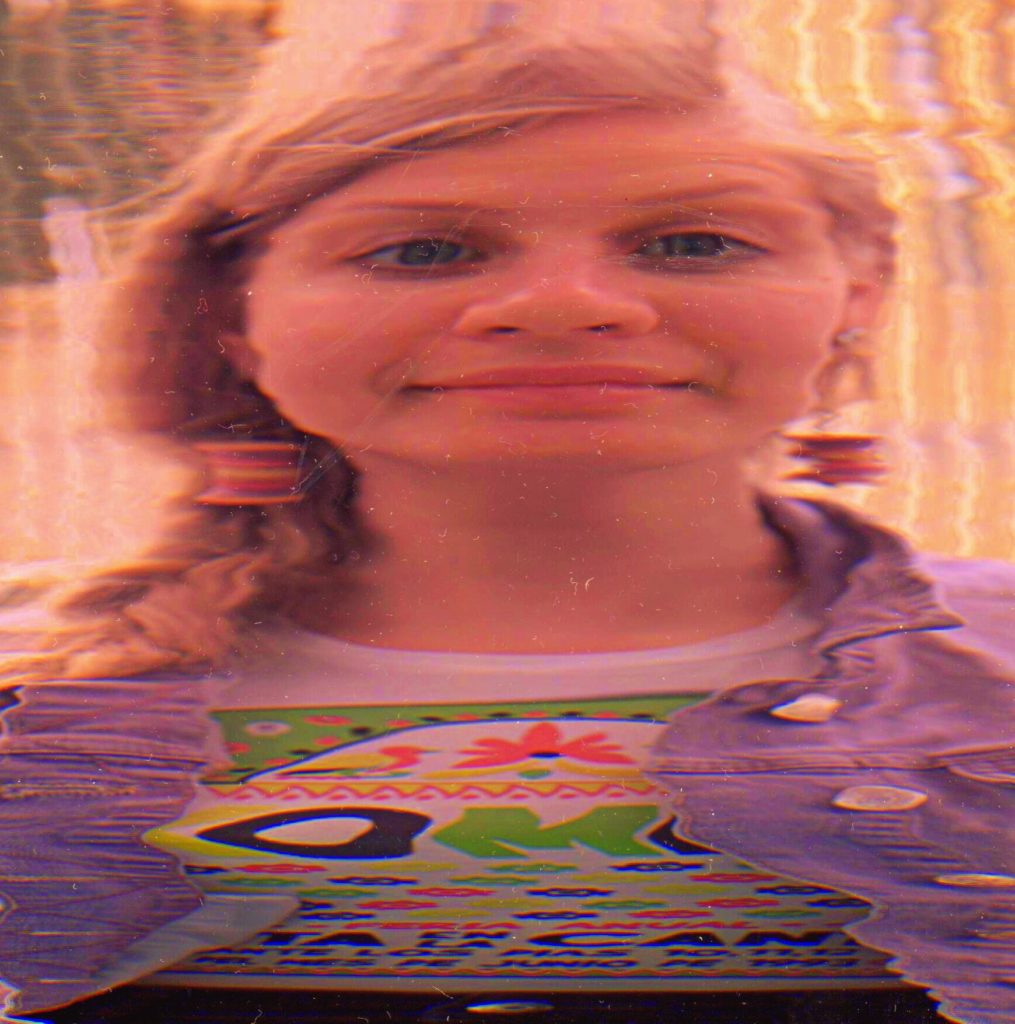
Ever fancied your having your portrait drawn by a street artist? Go one better with our hacked scanner. A truly individualised datafication process, and a great souvenir of the Free Market! Our hacked scanner was built with advice from artist Nathaniel Stern. The stall is being run by Furtherfield artist in residence Carlos Armendariz and Amelia Suchcika. Read more here.
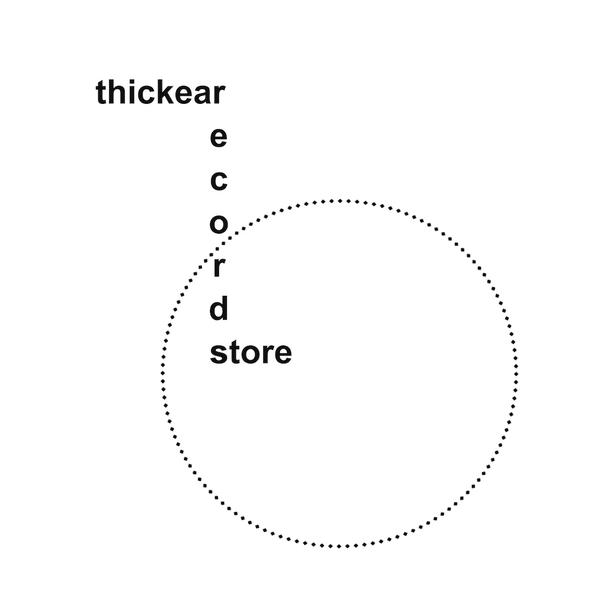
Browse the most up-to-date recordings, release your own records and walk away with limited edition thickear art tapes. No need to bring anything except your personal details – thickear Records Store is a one-stop-swap-shop for exploring current models of currency and exchange. An ongoing series of participation, performance and installation artworks about public transaction, which investigate economies of data exchange and consider how transactions are employed to create value. www.thickear.org
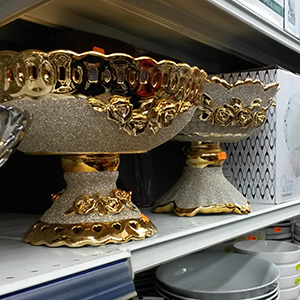
Take a quiz! Match your shopping habits to our detailed guidelines and share your results with your social network.
This Symposium aims to bring together a range of practitioners from the Performing Arts and theorists, including those involved with, but not limited to, dance, music, opera, theatre, magic, puppetry, and the circus. To discuss issues and opportunities in designing digital tools for communication, artistic collaboration, sharing and co-creation between artists, and between artists and actively involved creative audiences.
There are numerous existing online platforms that provide immediate and easy access to a vast range of tools for creative collaboration, yet their majority create and maintain networks within a ‘noisy’ social media environment, are based on a centralised model of collaboration, and are built on corporate infrastructures with well-known issues of control, identity, and surveillance.
Focusing on the Performing Arts, the symposium will take a bottom-up approach on how to design online collaborative tools without the noise of social media, drawing on peer-to-peer decentralised practices, infrastructures for building communities of interest outside the imperatives of corporate control, developing new kinds of narratives and synergies that add depth to artistic practice, blurring the distinction between artist and audience. We will discuss about what participation, collaboration, and co-creation means for the performing artists and their audiences in an online networked world and bring to the dialogue the needs, expectations, desire, aspirations and fears of working online collaboratively. We will identify, articulate and discuss artistic, social and design issues and opportunities, analyse existing projects and current practices, experiment with ideas and concepts and visual designs.
In brief, the symposium’s goals are:
The insights of this workshop will provide the base for a second, multidiscplinary workshop that will bring together performance artists and creative technologists and coders and whch will take place on the 14th July 2015 as part of the British Human-Computer Interaction conference at Lincoln, UK.
http://designdigicommons.org/http://british-hci2015.org/participation/workshops/
Walkshop, making session and drop-in day
Come for one or both sessions, or just drop in for a chat about MoCC over tea and cake.
11am-1pm – Data Walkshop with data activist Dr Alison Powell (LSE)
Explore and discuss the data surveillance processes at play in Finsbury Park through a process of rapid group ethnography. Arrive from 10.30am at Furtherfield Commons for a short introduction to the project. We will leave at 11am for a 60 minute walk around the area followed by snacks and discussion. Please bring:
BOOK HERE (places limited to 12 on a first come first served basis)
2pm-4.30pm – Making session: LEGO Re-creations & Interactive Posters
Work with Cultural Geographer Dr Ian Cook to turn your commodity stories into activist LEGO re-creations. Inspired by Nathaniel Stern’s hacked scanner, artist Carlos Armendariz will help you translate your data findings into visual events. Produce arresting images for an interactive poster for public display, then track and count its impact.
You are welcome to bring your own smart phones and computers along.
BOOK HERE
This event is part of the research and development for the Museum of Contemporary Commodities, an art and social project led by artist Paula Crutchlow (Blind Ditch) and cultural geographer Ian Cook (Univeristy of Exeter).
More info: http://www.moccguide.net/
Part of Furtherfield Open Spots programme.
The Visual Artists of the Balearic Islands (AAVIB), Spain, launched the activist campaign and contra contest ‘#Young_Fraud’ in September 2014. The contest is meant as creative weapon for influencing the politicians on their responsibility within arts, creativity and culture.
The awarded artists and the promoters of the campaign will be at Furtherfield Gallery presenting the project and showcasing the artworks. To celebrate the occasion, you are invited to create and discover the most stylish mediterranean Fraud Tapas and dance to the rhythms of unprejudiced Sounds of the band: JANSKY – a blend of danceable electrotechno, beatbox flute and spoken word, which has been described by Shremy’s Law (UK) as “a breath of fresh air in the world of electronica”.
Schedule:
12.00 Sparkling bubble Fraudstyle drinks
1PM Project presentation
1.30PM Collective elaboration: Unprejudiced mediterranean Speculative Fraud_TAPAS
3.30PM Chillin’ Sounds, full of the most stylish beats from Balearic Electronica with the band: JANSKY
This project developed an artistic action which aimed to fill in the void left by the recent cuts in public funding.
It also highlighted and demanded compensation with regard to the ‘Young Art Visual Arts’ contest, which ceased in the 2012, after complaints concerning the poor professional conditions of the artists who participated.
‘Frau_ Jove’ in Catalan is translated as ‘young fraud’. There is a reference in the title to the surname of Maria J. Frau, head officer of the Cultural Department of the Government.
The campaign has achieved extraordinary support from international art organisations such as Furtherfield Gallery (London), Matadero (Madrid), and Hangar Laboratory of Creation (Barcelona). The media also played an active role in supporting and promoting the project as well as the UAAV (in English, Union of Associations of Spanish Visual Artists).
An international jury was formed and composed of Chus Martínez, curator of the Catalonia pavilion in Venècia Biennale 2015, former director of El Museo del Barrio of New York and current director of the Academy of Art and Design in Basel (Switzerland); the critic and Catalan curator and promoter of A-Desk, David G. Torres; the art historian Piedad Solans; and the artist Bartomeu Sastre.
Of the 32 portfolios presented, the jury selected Isabel Servera and Guillem Portell who will be exhibiting their work in the galleries of Hangar, Matadero and Furtherfield.
National Radio RNE3 relocated from Madrid to Mallorca to broadcast the decision of the jury in a special 2 hour programme. The #AntiFrau_Fest line up featured sounds from the best Balearic electronic music creators: JANSKY, PEDRO TROZ, CAP DE TURC, POAL & DEFLED.
http://fossbox.org.uk/content/sex-and-security
A two-day event by Fossbox in collaboration with Furtherfield and Autonomous Tech Fetish around surveillance, gender and society. The event will consist of a practical privacy workshop followed by a day of discussion, making and performance. Open to everyone, women/LGBTQ especially welcome.
Practical workshop on privacy and security: 7 March, 11am
A focused exploration of the issues around sexuality, gender and surveillance. Visit this Meetup Group to join.
Discussion workshops – sex and surveillance: 22 March, 11am
A workshop using play, performance and discussion to develop a better understanding and a more collectivised civil response around these issues. Visit this Meetup Group to join.
If you’re hazy about how digital mass surveillance works and what you can do, you’ll get most out of it by attending both workshops. If you already know about the tech side, you might want to help out at the practical workshop!
The ‘Internet of Things’ (IoT) is heralded as a quantum leap in economy, society, culture and government — yet most people outside of the tech and creative industries struggle to get their heads around what this really means. A number of recent scandals involving ‘smart’ devices as well as Snowden’s revelations have highlighted the huge and slightly scary security and privacy issues at the heart of our brave, new, cyberworld. ICO and Offcom are acutely aware that this pervasive surveillance is making a mockery of current EU/UK privacy legislation which urgently needs an overhaul. Policy, however, prioritises rapid development of IoT over protecting sensitive data calling for ‘transparency’ rather than restriction of how our data can be collected and used. Meanwhile, the corporate and governmental chorus that law-abiding citizens have nothing to worry about from pervasive surveillance is wearing thinner every day.
As the digital domain begins to bleed into our ordinary, physical surroundings, the government is telling us that we don’t need privacy and even wants to outlaw the secure encryption which can protect our private life from being used for invasive profiling, ending up on public websites and social media, or on sale in the data black market. Cameron has stated that there should be absolutely no communication or data which the government can’t read. Is it really OK for corporations to compile and sell personal profiles so intimate that they know more about us than our loved ones do? Does the government really have a right to gather and keep our every private thought to be used in profiling if we ever do fall foul of the state for whatever reason? There is already a discussion of the ‘militarisation’ of social science and ‘predictive policing‘ – we’ve seen in the past which vulnerable groups are most likely to be targeted for profiling. What about the constant monitoring and manipulation of movement around cities. What if our government takes even more steps to the right whilst conditions get harder for most of the population. What if there were mass protests? What if a future right-wing government outside the EU decided to outlaw LGBTQ? What might these ubiquitous personal dossiers and pervasive control of urban space be used for then? Are we sleepwalking into a society where everyone is always-already a criminal and non-conformity or protest is no longer an option?
These developments are going to affect everyone but there are many issues around online security which will have particular resonances for women and queers and may affect us in very specific ways. There has been a lot of discussion and press about gender-trolling, ‘revenge porn‘, ‘gamergate‘ and Wikipedia, the ‘quantified self‘, FB real-names policy and binary sex dropdown lists in databases — to name but a few. However, there is not very much discussion about how these issues all fit together and what the overall impact of this production of digitised social space, hyper-self-awareness, and networked sexuality might be for women, queers, and marginalised groups. How does corporate and government surveillance and profiling affect our sense of self, our personal and public spaces, and our freedom to speak and organise with other women and queers? Where is the line between design which facilitates us and design which manipulates us?
The issues are hard to wrap your head around and keeping your private life private requires the commitment of a little effort — it can interrupt the manicured flow of our digital ‘user experience’. You might not really want to know what happens after you push the little button that says ‘send’ but staying safe online in 2015 and beyond is going to get a little bit more challenging. Not caring is going to be an increasingly risky option.
Technical solutions are needed, and a small army of ‘infosec’ practitioners, strong encryption, and hardened systems. However, this won’t be enough because USA, UK and EU governments are more concerned with corporate profits and the security of their own power than with the safety and wellbeing of civil society. Alongside our own private actions to secure our own data and the efforts of civil-society-hackers, non-profits and NGOs striving to keep us informed, skilled, and safe, we also need an aware and empowered civil society response. But is ‘smart’ economy an all-round bad idea purely to be defended against or is there the possibility of ‘smart’ technology and smart systems co-designed by and for women themselves and a respectful way to manage ‘big data’?
Join us for a free 2 day public game-jam event at Southbank Centre. Create online computer platform games for the extraordinary evolution of our species… or for total catastrophe… it’s our choice.
This launches a year of game-building online and at Furtherfield Commons, the community labspace in Finsbury Park, London N4.
@PlayYourPlace & @furtherfield
#webwewantfest
ruth.catlow[at]furtherfield.org
Join us to draw, make and play games for the Web We Want: to defend freedom of access and a life free from surveillance and data exploitation; to distribute knowledge and resources for the benefit of millions of people and their enduring communities.
As part of the Tim Berners Lee campaign for a Magna Carta for the web, we invite you to join us in a public drawing and game building event to work out what is most important for us all in the future of the web.
We will devise tactics and tools. Our drawings – avatars, background settings, obstacles, rewards – will form the building blocks of computer platform games of the Web We Want. Afterwards anyone can join in online from their homes, workplaces, universities and clubs to remix, redistribute and play games, or to build their own from scratch.
In 2015 Furtherfield will continue to develop games with others, hosting game-building workshops, gatherings and public events to build games for the future of the distributed web at Furtherfield Commons, the community labspace in Finsbury Park, London N4.
Play Your Place is an open artwork and game-building game created by artists, programmers, and imaginative citizens to develop a collective vision for a richer, emancipated life for all beings in all places.
People bring their expertise to game-jam events and through two imaginative world-forming activities: drawing and play. They swap their experiences and aspirations; they pinpoint obstacles to a good life, the tools by which these are overcome, and the rewards of success. In the process they create the resources and rules for polemical online platform games that can then be tested, remixed, relished and redistributed in epic play-sessions.
Where once the boundaries between the worlds of atoms and bits were marked by screens and passwords, chips and implants are now on or in our bodies, devices and appliances. The architecture and maintenance of the web, and the infrastructures of the Internet that underpin it are of consequence to us all. We are in the web, we are its users. The web is in us and upon us.
Play Your Place grew from conversations between artists, writers and Southend planners and residents about how people could get involved in planning decisions in their town. This formed the foundation for an artists’ residency for Ruth Catlow (Furtherfield, UK) and Dr Mary Flanagan (Tiltfactor, USA) and author Rachel Lichtenstein (UK) hosted by Metal in 2010. We have since created games about places with residents and visitors to Southend, South Westminster, Classroom N4 and the Alt_Cph ‘14 alternative arts festival in Copenhagen.
Play Your Place exists as a digital artwork prototype and is published as a FOSS game platform to Github under a GNU Affero General Public License. The game is developed by Soda with Ruth Catlow and Mary Flanagan, using HTML5 to enable accessible, cross platform in browser creation and play without plugins etc.
Planned future developments will enable: a simple entry level mode – especially for use with mobile devices – with guided level creation to introduce players to game creation and an advanced functionality mode for experienced users including a scripting tool; located big and open data integration linking data, games and comments, integrating into mapping apps and having located data effect gameplay; optimized physics enabling climbing, carrying, pushing, throwing etc.
FLOSS Manuals was launched by Adam Hyde in 2007 to remedy the deficit of good free documentation about Free Software. Our strategy since the beginning has been to develop communities to produce high quality free manuals about Free Software in their own language. Today, through the use of Booksprints and federated publishing techniques we have more than 120 books in more than 30 languages and more than 4,000 contributors.
FLOSS Manuals is more than a collection of manuals about doing things with free and open source software, it is also the community, The contributors include designers, readers, writers, illustrators, free software fans, editors, artists, software developers, activists, and many others. Anyone can contribute to a manual – to fix a spelling mistake, add a more detailed explanation, write a new chapter, or start a whole new manual on a topic.
FLOSS Manuals now consists of 3 independent language communities (French, English, Finnish) supported by a Foundation based in Holland. Our current focus is to develop strong partnerships with grassroots educators to develop educational materials about free software. Come to our UK hub warm-up meeting at Furtherfield to propose books/manuals projects, to encourage others to propose book/manual projects and also to invite publishers, or people interested in publishing.
The afternoon is convened by Larisa Blazic, Mick Fuzz and Rachel Baker. Mick is a long-term contributor at FLOSS Manuals and community educator. Rachel has recently undertaken a detailed study of Booksprints process. Larisa is investigating how FLOSS tools and practices to be best embedded in post-graduate programmes.
Lara: lab_web AT yahoo.com
Mick – FM: mick AT flossmanuals.net
The Arts Catalyst in partnership with Furtherfield
Gallery tour with the artists, Saturday 21 June 2pm
The SEFT-1 exploration probe will be on display next to the gallery 20–22 June, 11–13 July, 18–20 July and 25–27 July 2014.
SEE IMAGES FROM THE PRIVATE VIEW
Ivan Puig and Andrés Padilla Domene (Los Ferronautas) built their striking silver road-rail SEFT-1 vehicle to explore the abandoned passenger railways of Mexico and Ecuador, capturing their journeys in videos, photographs and collected objects. In their first London exhibition, SEFT-1 Abandoned Railways Exploration Probe – Modern Ruins 1:220, commissioned by The Arts Catalyst and presented in partnership with Furtherfield in their gallery space in the heart of Finsbury Park, the artists explore how the ideology of progress is imprinted onto historic landscapes and reflect on the two poles of the social experience of technology – use and obsolescence.
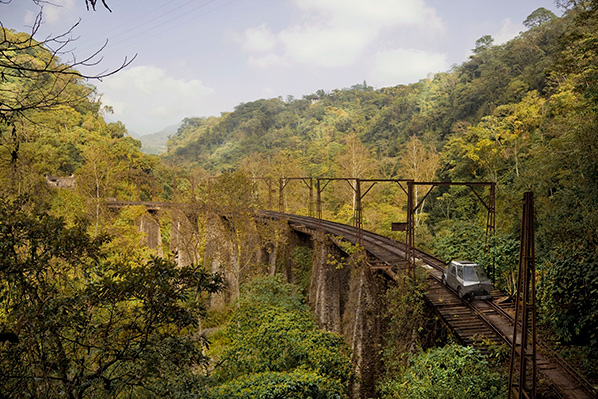
Between 2010 and 2012, the artists travelled across Mexico and Ecuador in the SEFT-1 (Sonda de Exploración Ferroviaria Tripulada or Manned Railway Exploration Probe). In a transdisciplinary art project, they set out to explore disused railways as a starting point for reflection and research, recording stories and testimonials as well as the landscapes and infrastructure around and between cities. Interviewing people they met, often from communities isolated by Mexico’s passenger railway closures, they shared their findings online, www.seft1.com, where audiences could track the probe’s trajectory, view maps and images and listen to interviews.
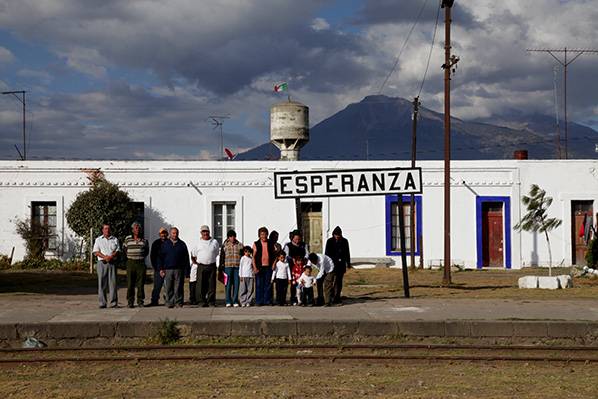
The artists’ journeys led them to the notion of modern ruins: places and systems left behind quite recently, not because they weren’t functional, but for a range of political and economical reasons. In the second half of the 19th century, the Mexican government partnered with British companies to built the railway line that would connect Mexico City with the Atlantic Ocean – and beyond to Europe. This iconic railway infrastructure now lies in ruins, much of it abandoned due to the privatisation of the railway system in 1995, when many passenger trains were withdrawn, lines cut off and communities isolated.
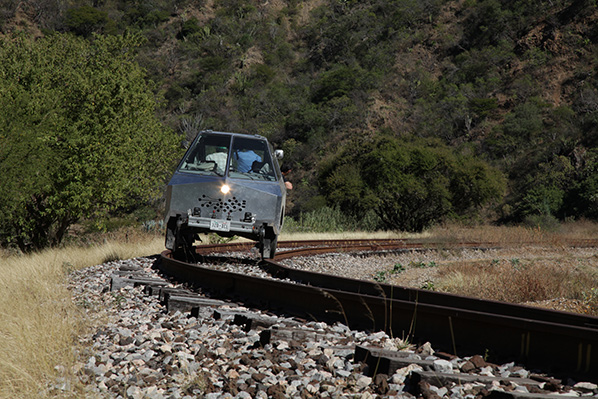
For this new exhibition, the artists are inviting British expert model railway constructors to collaborate by creating scale reproductions of specific Mexican railway ruins exactly as they are now. One gallery becomes a space for the process of model ruin construction. The room’s walls will show the pictures, documents, plans and other materials used as reference for the meticulously elaborated ruin construction. With this action a dystopian time tunnel is created.
Ivan Puig (born 1977, Guadalajara, MX) has exhibited internationally in Mexico, Germany, Canada, Brazil and the United States. He is the recipient of a number of awards and residencies including the BBVA Bancomer Foundation Grant for the SEFT-1 project (2010-2011) and the Cisneros Fontanals Foundation (CIFO) Grant in 2010. Puig, a member of the collective TRiodO (with Marcela Armas and Gilberto Esparza), lives and works in Mexico City.
Andrés Padilla Domene (born 1986 in Guadalajara, MX) has exhibited work in various contexts including ISEA 2012 (Albuquerque, New Mexico), The National Museum of Art MUNAL (Mexico City, 2011), 04 Transitio_MX (Mexico, 2011), and EFRC, Centro de Arte Contemporáneo (Qutio, Ecuador, 2012). His video work as director and producer with Camper Media includes documentaries, fiction films and TV shows.
Tuesday 17 June 6.30–9.00pm – artists Ivan Puig & Andrés Padilla Domene will be in conversation with The Arts Catalyst curator Rob La Frenais during London LASER 04 at University of Westminster (book here)
Saturday 21 June 2pm – Gallery tour with the artists, FREE
Saturday 21 June 3–5pm – A de-industrialised estate – Talk with Dr Malcolm Miles and discussion with the artists at Furtherfield Commons – (limited capacity £5, details and online booking here)
Saturday 12 July 11.30am–1.30pm – Drop in to the gallery and meet model railway maker extraordinaire Neville Reid and artist Andrés Padilla Domene, FREE
Saturday 12 July 2–4pm – Death Collapsing Into Life – Guided walk along Parkland abandoned railway with landscape architect, urbanist and writer Tim Waterman (limited capacity £5 and up to two children under 15 free, details and online booking here)
With support from Embassy of Mexico, Arts Council England, Central de Maquetas.
Furtherfield Gallery
McKenzie Pavilion, Finsbury Park
London N4 2NQ
T: +44 (0)20 8802 2827
E: info@furtherfield.org
Furtherfield Gallery is supported by Haringey Council and Arts Council England
Autonomous spaces, autonomous networks, boxes and forks – we invite all DIY lovers to come and join us for an afternoon of re-appropriation of networking technology to bypass the censorship and liberate our files.
What does a free culture look like? What is technology that supports it? For many years artists (among others) have been engaging with these questions, challenging restrictive laws and regulations as well as complex technical solutions. A new surge in search for practical solutions to file-sharing, easier to use and incorporate to our everyday life is the focus of this workshop. On the day we will install and use Piratebox and Librarybox on various devices to test their promise.
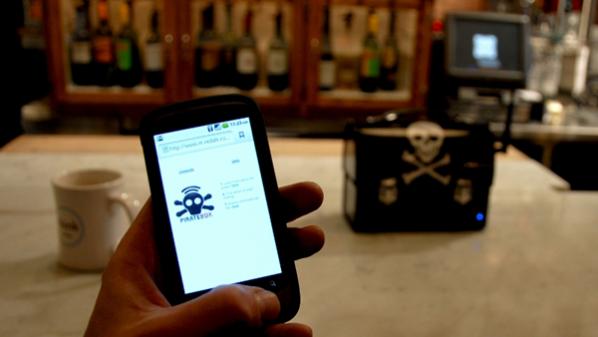
Inspired by pirate radio and the free culture movements, PirateBox utilizes Free, Libre and Open Source software (FLOSS) to create mobile wireless communications and file sharing networks where users can anonymously chat and share images, video, audio, documents, and other digital content.
Piratebox fork, LibraryBox is an open source, portable digital file distribution tool based on inexpensive hardware that enables delivery of educational, healthcare, and other vital information to individuals off the grid.
+ For more information about the event please contact Larisa Blazic.
Flossie is for women interested in using open source as coders, artists and social innovators. We run an annual conference and also regular events in London.
Furtherfield Commons
Finsbury Park
Near Finsbury Gate On Seven Sisters Road
E: info@furtherfield.org
Furtherfield Gallery is supported by Haringey Council and Arts Council England.
See images of the event on Flickr
Olga P Massanet and Thomas Aston have built a custom made VLF antenna to monitor ionospheric disturbances caused by solar storms. For this exhibition they invite makers and thinkers to participate in a creative sprint and come up with ideas on how to make these disturbances felt. Whether it’s a device, a visualisation, a sonification, or a poem, participants will design interfaces to tune into some of the most powerful forces that permeate our world.
In a matter of 5 hours participants will experience what the artists have been through in the past 5 months. In teams, they’ll get to build an antenna, tune it, collect the data and conceive or experiment with actual or possible interfaces to make solar storms ever more tangible!
Olga P Massanet
Olga is a media artist and researcher working as co-editor on the Furtherfield website and developing and delivering workshops for the Zero Dollar Laptop project and Furtherfield’s Outreach programme. Olga is currently pursuing a practice-based PhD at Goldsmiths. Her research project looks into assemblages of sunlight, human bodies and machines. She is particularly interested on subtle modes of communication across bodies of radically different nature. She looks at the ways in which electronic circuits, computational systems, endocrine processes and neurological happenings intermingle. The tools she develops are speculations about the undercurrents of body communication.
Thomas Cade Aston
Thomas is an emerging sound artist and electronic musician based out of London, UK and Toronto, Canada. His composition, production and performance work explores the dark and meditative fringes between technical, cerebral and somatic experience. Recent work includes ambient electronic compositions for Space Video (Turbulence/Revised Projects– Vancouver), an interactive soundscape for A Place to Reflect (Nuit Blanche-Toronto) and a highly anticipated electronic A/V performance at NewFormsFestival 11 (Vancouver). Thomas is busy at play in the spectrum, pursuing an MA in Interactive Media at Goldsmiths College, UK and readying for the launch of his debut LP Greenwich Mean Time with Hybridity Music this summer.
+ Technologies of Attunement is part of Invisible Forces at Furtherfield Gallery.
+ More Invisible Forces events.
AKA the Castle
Strategy workshops: How Can A Forest Move?
Part of Moving Forest London2012 development workshops
All events are free but space is limited.
Booking essential. Please RSVP to now@movingforest.net
Friday 9 December 2011, 11-4pm. Furtherfield Gallery
Isaac Marrero-Guillamón – The Militant City
Saturday 10 December 2011, 11-4pm. Furtherfield Gallery
Rachel Baker and Kayle Brandon – The Witches and 3-Keys
Monday 12 December 2011, 6-9pm. Furtherfield at SPACE MediaLab
The Laboratory of Insurrectionary Imagination presents:
TREE THOUGHTS: Strategies of artivisme and permaculture, a taster
Furtherfield Gallery, McKenzie Pavilion, Finsbury Park, London N4 2NQ
Friday 9 December 2011, 11-4pm
The Olympic mega-event is akin to Rancière’s ‘order of the police’. It regulates what is visible and invisible, sayable and unsayable, thinkable and unthinkable; it distributes individuals and groups in positions of ruler or ruled.” Join Isaac Marrero-Guillamón, researcher for The Militant City, in a discussion and workshop on exploring the role of art in relation to the Olympics, its legal architecture, and its elevation to a ‘state of exception’. Bring projects, ideas, stories and prepare for battle over the control of language, sign, transmission and public space.
Furtherfield Gallery, McKenzie Pavilion, Finsbury Park, London N4 2NQ
Saturday 10 December 2011, 11-4pm
Rachel Baker and Kayle Brandon jointly lead this day of prophecy, prediction and mobilization strategies for mapping the Moving Forest onto the London Olympics; tuning in the camouflaged branches to the contemporary mood of economic chaos and revolt.
Rachel Baker – Witches, Prophecy and Prediction
The story of Macbeth began with a witches’ prophecy and ended in murder and revolt. Did the witches predict a future already seen or did they merely plant some well-placed psychological seeds to trigger a self-fulfilling prophecy? In doing so, were they able to influence reality? What prior information did they need to have? Is it the magical, spectral appearance of the witch that lends the prophecy its power, or their insertion into everyday life?
Kayle Brandon- 3-Keys
The three witches’ prophecy and their tools and techniques of divination are deployed to make a card game called The 3-Keys. Illuminating insurgent mobilisation strategies, the game will map the key relational powers within the Olympic game, matching/twinning them with the essential Macbeth elemental and physical conditions. Discussion will surround further oracle, divination tools and techniques that enable one’s actions to be fated or influenced by these processes.
The Laboratory of Insurrectionary Imagination presents:
Furtherfield at SPACE MediaLab
, 129—131 Mare Street, London E8 3RH, 020 8525 4330
Monday 12 December 2011, 6-9pm
This workshop is a taster to methodologies that merge ecological design models of Permaculture with forms of creative resistance. Permaculture mimics the patterns of living systems and applies them to human designs, these whole system thinking tools will be applied to strategies for developing creative actions. The workshop is suitable for artists and activists of all sorts and with any kind of experience and aims to give a feel of how it might be to “think like a forest”.

The workshops are in preparation for a performance of Moving Forest, first presented at Transmediale.08 in Berlin, during London Olympics 2012 by AKA the Castle in partnership with MA Interactive Media & Centre for Cultural Studies at Goldsmiths, University of London, Furtherfield, Space, MzTEK, Digital Programmes and Victoria and Albert Museum.
A 12 hour, five act, visual, sonic, digital, electronic and urban performance collectively realized by AKA the Castle, a temporal performance troupe bringing together visual artists, writers, soundists, silk threaders, codedecoders, macromikro, boombox mass, mobile agents, wifi fielders and urbanites. 12 hours of sonic, coded action map an imaginary Castle and camouflage forest revolt onto a given modern day metropolis.
Isaac Marrero-Guillamón
Isaac Marrero-Guillamón is a sociologist/anthropologist. He has lived and worked in London since 2007. He is currently a post-doctoral research fellow at Birkbeck, University of London, undertaking a two-year project called The Militant City, which investigates artistic practices critical towards the Olympics.
Rachel Baker
Rachel Baker is a network artist who collaborated on the influential irational.org. Her art practice explores techniques used in contemporary marketing to gather and distribute data for the purposes of manipulation and propaganda. Networks of all kinds are “sites” for Baker’s public and private distributed art practice, including radio combined with Internet (Net.radio), mobile phones and SMS messaging, and rail networks.
Kayle Brandon
Kayle Brandon is a inter-disciplinary Artist/researcher, whose work is sited within the public, social realm. She predominantly works in collaborative and collective fields; a working method which informs much of her ethos around the making of art. Her main areas of interest are in the relationships between the natural and urban worlds and Human/Non-human relations. She investigates this field via physical intelligence, provocative intervention, observation, self-guided exploration and collective experiences.
The Laboratory of Insurrectionary Imagination
Infamous for fermenting mass disobedience on bicycles during the Copenhagen climate summit, throwing snowballs at bankers, touring the UK recruiting a rebel clown army and covering the Tate in unwanted molasses to get them to drop BP funding, The Laboratory of Insurrectionary Imagination (Lab of ii) exists somewhere between art and activism, protest and poetics.
Furtherfield Gallery, McKenzie Pavilion
Finsbury Park, London N4 2NQ. Open 11-4pm
For details on how to find us visit our contact page.
“You Are Now the Electronic Man” are the words that appear before even opening the website for The Electronic Man, a project initiated by Salvatore Iaconesi and Oriana Persico of Art is Open Source (AOS) and FakePress. And by becoming part of The Electronic Man, sharing your emotions as they become linked through QR Codes and help to build the frame of The Electronic Man, you are participating in a real time global performance.
This real time global performance relates to conceptual experiments by AOS and FakePress, in remixing reality and creating new sensual experiences with technology. The email interview took place after their recent exhibition at Furtherfield’s gallery in London, called REFF – REMIX THE WORLD! REINVENT REALITY!, which happened during February, March 2011, and during their current project The Electronic Man. We discuss AOS’s ideas and intentions, regarding their activities of performance and use of technology, and their methods of engagement with anthropology and biology.
Renee : The Electronic Man is quite an ambitious project. What inspired you to begin building the Electronic Man?
Salvator and Oriana: The Electronic Man is actually a very simple project (if quite a difficult one in terms of “making it happen”) as it is a direct poetic interpretation of a theory by Marshall McLuhan that goes by the same name. We decided to take the famous statement by Marshall McLuhan quite literally and transform it into something that is really happening in the world: “Electronic man like pre-literate man, ablates or outers the whole man. His information environment is his own central nervous system.”
What we wanted to do was to make our statement for the centennial of McLuhan’s birth, but to avoid the form of the “conference presentation” for it, and to show in a powerful way how the ideas expressed by McLuhan are really taking place in the world which we experience every day. So we decided to produce a performance, a global performance.
With the wonderful support of Derrick de Kerckhove, and of the MediaDuemila magazine (and the Associazione Amici di Media Duemila and the Osservatorio Tuttimedia, and the Department of Communication and Social Research of Rome’s University “La Sapienza”, who were organizing the official event for the centennial in Rome, under the fundamental guidance of Maria Pia Rossignaud) we were able to make it happen and everyone involved was really happy to include this experience in the official celebrations.
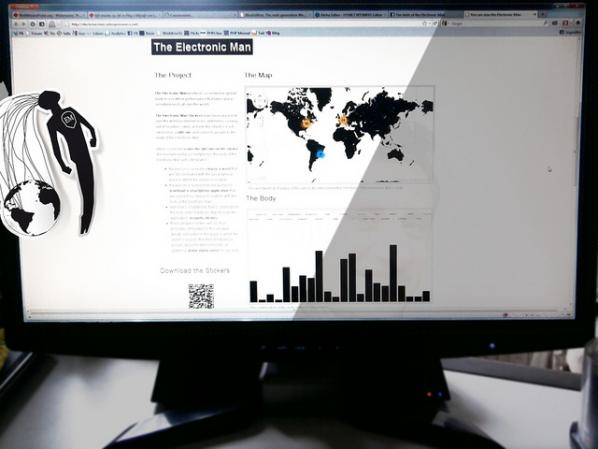
Renee Carmichael: I find the methodology behind this project really interesting. From what I understand it’s about going beyond the analogue vs. digital debate and really going in between and just experiencing and experimenting. Do you think this methodology is important to use in today’s world? How and why might this be so?
Salvatore and Oriana: We are living in a really complex scenario, complex, fast and ever changing. Digital technologies and networks are starting to pervade our analogue reality, transforming it and opening up entirely new possibilities. There are forms of (digital) interaction that are starting to be widely accessible from physical space. These forms of interaction are really peculiar as they allow for a transformation of (physical) reality, making it interactive, reinventing it, remixing it, and adding content to it. The world itself becomes a performance and a very specific form of performance: involving remixes, mashups, recontextualizations and reenactments as its main practices. This has drastic effects, not only as our reality multiplies and reshapes, but also attitudes, perceptions, skills, knowledge and approaches of the people involved change. In this process methodologies, practices and theories remix as well, bringing forth various possible scenarios, in which collaboration practices emerge as the only viable way to perform significant actions.

So, in this scenario, “life, the world and everything” is turning into a multipliable, performative environment in which the only way to, actually, perform in a significant way is to collaborate across cultures, skills, theories and methodologies. This brings forth a change to our sensorial environment, meaning that when ubiquitous technologies are involved, we instantly gain new senses, new sensorialities and sensibilities. Just like with the mobile phone, when it doesn’t catch the network, we move, naturally and without thinking about it, to a place that has better network coverage, in a way that is neurologically similar to the way in which we move our hand away from fire when we feel the heat: it is a real sensibility, an additional sense.
Mixing these two aspects (the forming of a multilayered, collaborative, read-write reality, and the emergence of these new senses), describes a situation that is almost exactly the one presented in the question: experimentation, as in performance and as in science, this new science that traverses disciplines, theories and approaches; and experience, meaning you are actually able to build a new experience of the world that is sensorial and, most important of all, writable.
This is also a good description of the shape that the term “conflict” is assuming: a continuous process of movement and traversal, in which you transform a part of reality (as in augmented reality) adding new meaning and imaginaries to it, in a performative action that unites activism, art, science, design and communication, and that transforms and is transformed really fast, at the pace of the evolution of technologies and networks.
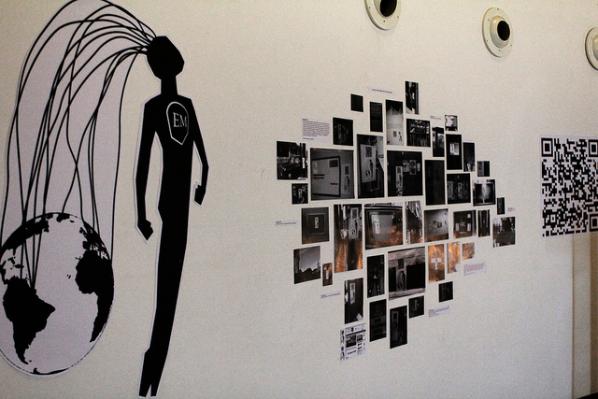
Renee: I read that this project can help us experience and reflect on our place in the world through the external. Do you think the relationship between the individual and the external takes a new shape throughout this project? How might it be understood in the larger ideas and theories of the Electronic Man?
Salvatore and Oriana: The Electronic Man is about the observation and exemplification of something that is already happening in the world. It speaks about interconnection and our renewed perception of space, time, body and relationships. Technologies helped us reshape these concepts completely. We are never in a single place now; we are everywhere, anytime and with lots of people all at the same time, using multiple identities, both voluntarily (mobile phones, ubiquitous networks..) and involuntarily (CCTV, social networks spying on us..). So all these definitions change radically: private and public space, gender, relationship, message, privacy, work and free time. We wanted to make this change explicit. In this change: public and private completely restructure! This is also why we decided to use the “emotional” dimension as a narrative: emotions are thought to be a private, intimate part of our lives, but now they are the object of public observation through what we do in the digital realms, for the new forms of economies that are developing, focusing on attention, reputation, awareness and more.
Renee: Although the Electronic Man allows us to experience sensually, it still creates finite points of data through the connections between a place and an emotion. What do you think is the relationship between the sensual impact of the project and the data it produces? How does the data fit into the idea of creating a new ‘global digital sense of our bodies’?
Salvatore and Oriana: This is a very complicated question! We chose this approach as a starting point. We are using a classification of emotions which is very basic (designed by Plutchik in 1980) it works really well across different languages (we are currently using 29 languages for our performances, to address as much of the world as possible). But this point that is described in the question (freeing the modalities of data, augmenting the degrees of freedom which we can express) is one of the focal points for expansion in the next steps. There are solutions and approaches which we are finding suitable to confront these issues with, and they are all related to adding degrees of freedom in what you “release to the public”: transforming artworks into free frameworks for expression that can be freely used by people. This transformation from artwork to framework is something that is happening all over, and it has to do with P2P culture and free software. This is why we release all the software and hardware (and methodologies) we use in our performances under free licenses: because the next step of each performance is made by the people taking the tools in their own hands and creating their own forms of expression and action, their own additional layers of the world.
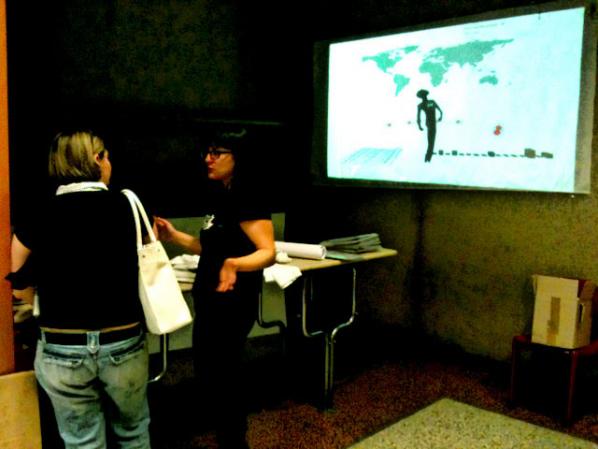
Renee: In a related note, this new form of being that the Electronic Man creates cannot be completely separated from the world and systems it exists in already. It seems that the questions that often arise around this project are in terms of how it can be used within other appropriations. How do you see the future of this project in terms of the various appropriations that it may have and in terms of your own intentions for the project?
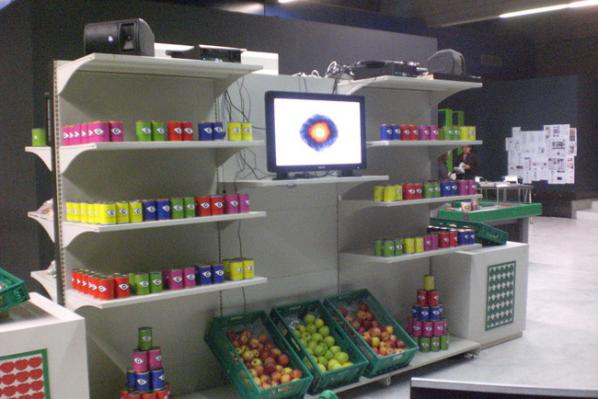
Salvatore and Oriana: As we said: we’re always in beta version. These processes are nomadic, temporary, and unstable. Ideas, software tools, concepts, hardware, practices and approaches are in a continuous state of remix: each time we speak to anyone, or even as we’re writing this, the performance changes and upgrades to the next version. For example we can look at the recent augmented reality interventions that have been taking place all over the world and, just a few days ago at the Venice Biennale: there has been a very fertile discussion building up during the last two years, on the idea that these technologies allow you to “squat” reality, and add new meanings and new degrees of freedom to it. This is why we created a project called Squatting Supermarkets a couple of years ago. This discussion is producing actions: appropriations, performances, re-usage of terms, words, sentences, new forms of activism, and new forms of art. We’re really happy that this is taking place, and we see all this as a wider form of performance in which everyone interested can be involved.
Renee: I can’t help but see a relationship between The Electronic Man and a sort of modern day Frankenstein. Would you like to comment on this relationship?
Salvatore and Oriana: We will answer this question using an answer that our dear friend prof. Massimo Canevacci gave to a question during a TV show in Italy: “This is a wonderful question, and I am deeply convinced that western cultures produced these really heavy mythologies around Frankenstein, the Golem, and arriving to a movie, a very nice one, like Blade Runner, taken from a novel by Philip Dick.
I am certain that this system, this dualism between technology and body, between organic and inorganic, between nature and culture, is finally over, in a liberating way. There are researches in which the concept of cyborg constitutes a perspective that is capable of liberating enormous possibilities. Therefore our bodies become progressively more entangled with technology all over literature, technology, anthropology, and biology.
Thus I sincerely hope that this enormous mythology, this terrifying myth of the Frankenstein, will finally end, once and for all, and will peacefully retire; and that new forms of cyborg will emerge and free themselves, to produce new free forms of expression.
Renee: Finally, any further issues, ideas, thoughts you would like to add?
Salvatore and Oriana: Yes!
The Electronic Man is a global performance! And it becomes useful if lots of people participate (and, by the way, participate by doing even simple things such as attaching some of the Electronic Man stickers around and sending us a picture, and you’ll find yourself and your work advertised whenever we exhibit the work: for example at the MACRO museum in Rome there is a full wall dedicated to the people that are helping us out, including their bios, pictures and links) But, most of all, it becomes useful if lots of people actively grab technologies, methodologies and concepts and actively build their own performative world, possibly sharing the results with everyone else.
So we strongly invite everyone out there to request the software, (it will be published on our sites as soon as we have some time to prepare a proper sharing mechanism, but you all can have it before that by simply asking) and to imagine other disruptive ways of using technologies to create free, accessible, inclusive spaces for communication and expression.
We will support you all in that as much as we can.
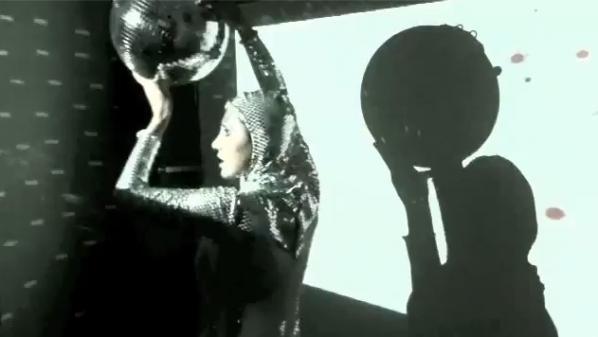
The Electronic Man at ADD Festival, MACRO Testaccio, Rome contemporary art museum, view video on Youtube.